Archive of Stewardship Articles
Rare is the saint who has not breathed the cry of David, "Lord, how long shall the wicked, how long shall the wicked triumph?" (Psalm 94:3). It seems like liberal and humanistic educators dominate and control the educational process. A humanistically trained population assumes influential positions in all branches of government which then make, execute, interpret, and enforce laws in conformity to humanistic agendas. The mass media spins liberal policy in a favorable light, conservative policy in an undesirable light, and Christianity as a radical right-wing extremism.
Perhaps more damaging to the Kingdom is the influence among Western churches of claims of personal revelation, a quest for subjective experience, and the rising influence of existentialism and postmodernism—all converge to foster a low view of Scripture.
"If the foundations be destroyed, what can the righteous do?" (Psalm 11:3).
The answers to these worldly observations, plaintive cries, and rhetorical questions that fret about the apparent power of the wicked, lie in the overarching eternal truths of Scripture.
- God is Truth, whether anyone believes it or not (Romans 3:4).
- God's Word is sufficient to "answer" every man (II Timothy 3:16-17;
I Peter 3:15; II Peter 1:3-4). - God's plan is for His saints to win! (Genesis 1:28; Isaiah 11:9, 55:11; Matthew 6:10; Revelation 11:15).
- Our trust in God's Word and way will bring victory (Psalm 37).
ICR is committed to "preaching" the Word and "contending" for the faith—in every sphere of truth (science, technology, education, commerce, humanities). Your financial help strengthens our hands.
Rare is the saint who has not breathed the cry of David, "Lord, how long shall the wicked, how long shall the wicked triumph?" (Psalm 94:3). It seems like liberal and humanistic educators dominate and control the educational process. A humanistically trained population assumes influential positions in all branches of government which then make, execute, interpret, and enforce laws in conformity to humanistic agendas. The mass media spins liberal policy in a favorable light, conservative policy in an undesirable light, and Christianity as a radical right-wing extremism.
Perhaps more damaging to the Kingdom is the influence among Western churches of claims of personal revelation, a quest for subjective experience, and the rising influence of existentialism and postmodernism—all converge to foster a low view of Scripture.
"If the foundations be destroyed, what can the righteous do?" (Psalm 11:3).
The answers to these worldly observations, plaintive cries, and rhetorical questions that fret about the apparent power of the wicked, lie in the overarching eternal truths of Scripture.
- God is Truth, whether anyone believes it or not (Romans 3:4).
- God's Word is sufficient to "answer" every man (II Timothy 3:16-17;
I Peter 3:15; II Peter 1:3-4). - God's plan is for His saints to win! (Genesis 1:28; Isaiah 11:9, 55:11; Matthew 6:10; Revelation 11:15).
- Our trust in God's Word and way will bring victory (Psalm 37).
ICR is committed to "preaching" the Word and "contending" for the faith—in every sphere of truth (science, technology, education, commerce, humanities). Your financial help strengthens our hands.
These general principles of Scripture (Matthew 15:19; Proverbs 4:23; Romans 8:7-8) underscore the widely observed phenomena that behavioral lifestyles are the result of "values" held intellectually. Or put more succinctly: what you believe affects what you do.
Two Worldviews: Theistic and Atheistic
The overarching and foundational premises upon which all thinking men and women build their lives are either theistic or atheistic. That is, they make the assumption (believe) that "a" god exists or that one does not. Being theistic does not mean that one is "Christian"—or even more important—that one believes in the revealed Word of a Creator God. But being theistic does mean that supernatural is probable and that "things" are sometimes unexplainable in natural terms. Such a "spiritual" view of reality is in direct conflict with atheistic and naturalistic science. Some try to blend the two views with various "paranormal" hybrids, but the "true" scientist rejects such efforts to blend atheism with theism.
The Bible Can Not Be Harmonized with Naturalism
Trying to make the words of Scripture fit the thoughts and ideas of godless men is not a new phenomena. Satan distorted the message of the Creator in the Garden. Prophets, kings, priests, pastors, sorcerers, alchemists, politicians, evangelists, pundits, scientists, and theologians have all tried to distort, deconstruct, and denigrate God's Word in many different ways over the centuries. The common theme—the common methodology—has been to seek some hybridization of the words of God and the words of men. God must accommodate Himself to the "discoveries" and "knowledge" of men. As the apostle Paul said: "God forbid!" (Romans 3:4).
ICR Will Not Compromise the Biblical message
Our effort to uncover and present scientific evidence of the Bible's credibility is with the expectation that God will use such "substance" and "evidence" to bring men and women to faith in Jesus Christ.
Please share your resources with us and enable us to stand.
[body_edit] =>These general principles of Scripture (Matthew 15:19; Proverbs 4:23; Romans 8:7-8) underscore the widely observed phenomena that behavioral lifestyles are the result of "values" held intellectually. Or put more succinctly: what you believe affects what you do.
Two Worldviews: Theistic and Atheistic
The overarching and foundational premises upon which all thinking men and women build their lives are either theistic or atheistic. That is, they make the assumption (believe) that "a" god exists or that one does not. Being theistic does not mean that one is "Christian"—or even more important—that one believes in the revealed Word of a Creator God. But being theistic does mean that supernatural is probable and that "things" are sometimes unexplainable in natural terms. Such a "spiritual" view of reality is in direct conflict with atheistic and naturalistic science. Some try to blend the two views with various "paranormal" hybrids, but the "true" scientist rejects such efforts to blend atheism with theism.
The Bible Can Not Be Harmonized with Naturalism
Trying to make the words of Scripture fit the thoughts and ideas of godless men is not a new phenomena. Satan distorted the message of the Creator in the Garden. Prophets, kings, priests, pastors, sorcerers, alchemists, politicians, evangelists, pundits, scientists, and theologians have all tried to distort, deconstruct, and denigrate God's Word in many different ways over the centuries. The common theme—the common methodology—has been to seek some hybridization of the words of God and the words of men. God must accommodate Himself to the "discoveries" and "knowledge" of men. As the apostle Paul said: "God forbid!" (Romans 3:4).
ICR Will Not Compromise the Biblical message
Our effort to uncover and present scientific evidence of the Bible's credibility is with the expectation that God will use such "substance" and "evidence" to bring men and women to faith in Jesus Christ.
Please share your resources with us and enable us to stand.
[typeID] => 4 [visible] => t [pdf] => [publishURL] => why-creationist-worldview-so-critical [publishDate] => 0000-00-00 [authorAsterisk] => f [domainID] => 1 [publication] => [volume] => [issue] => [page] => [author] => Henry M. Morris III, D.Min. ) -->
Often one hears the comment, "Our country is going downhill fast!" That is true from our perspective (in light of the few decades that most of us have been alive), but history offers both verification of our observations and hope for God's intervention in the affairs of men.
Leaders Challenge, Restore, or Destroy.
Political leadership has always impacted the morality of a country. "When the righteous are in authority, the people rejoice: but when the wicked beareth rule, the people mourn" (Proverbs 29:2). Bible history tells us that there was a great revival under Hezekiah, followed by an awful 55-year rule under Manasseh, a bloody murder of his son, Amon, soon after, then a great revival under Josiah that impacted the next 30 years. Habakkuk agonized about "things" as Josiah's rule was ending, asking God; "O Lord, how long shall I cry, and thou wilt not hear! even cry out unto thee of violence, and thou wilt not save! Why dost thou shew me iniquity, and cause me to behold grievance? for spoiling and violence are before me: and there are that raise up strife and contention" (Habakkuk 1:2-3).
Christian Leadership Requires a Long View.
". . . let us lay aside every weight, and the sin which doth so easily beset us, and let us run with patience the race that is set before us, Looking unto Jesus the author and finisher of our faith . . ." (Hebrews 12:1-2).
We are told that our warfare is not "fleshly" (II Corinthians 10:3-4) and that we are not to "look" at the temporal things (II Corinthians 4:18). We must, of course, be alert and "sober" (I Thessalonians 5:6) — make sure you vote intelligently in November! However, our role is to "seek ye first the kingdom" (Matthew 6:33) and pray for the day when God's will is "done in earth, as it is in heaven" (Matthew 6:10).
ICR is Committed to Undeviating Biblical Inerrancy.
ICR seeks to uncover and present contemporary scientific evidence of the Bible's credibility. Please share your resources with us and enable us to stand.
[body_edit] =>Often one hears the comment, "Our country is going downhill fast!" That is true from our perspective (in light of the few decades that most of us have been alive), but history offers both verification of our observations and hope for God's intervention in the affairs of men.
Leaders Challenge, Restore, or Destroy.
Political leadership has always impacted the morality of a country. "When the righteous are in authority, the people rejoice: but when the wicked beareth rule, the people mourn" (Proverbs 29:2). Bible history tells us that there was a great revival under Hezekiah, followed by an awful 55-year rule under Manasseh, a bloody murder of his son, Amon, soon after, then a great revival under Josiah that impacted the next 30 years. Habakkuk agonized about "things" as Josiah's rule was ending, asking God; "O Lord, how long shall I cry, and thou wilt not hear! even cry out unto thee of violence, and thou wilt not save! Why dost thou shew me iniquity, and cause me to behold grievance? for spoiling and violence are before me: and there are that raise up strife and contention" (Habakkuk 1:2-3).
Christian Leadership Requires a Long View.
". . . let us lay aside every weight, and the sin which doth so easily beset us, and let us run with patience the race that is set before us, Looking unto Jesus the author and finisher of our faith . . ." (Hebrews 12:1-2).
We are told that our warfare is not "fleshly" (II Corinthians 10:3-4) and that we are not to "look" at the temporal things (II Corinthians 4:18). We must, of course, be alert and "sober" (I Thessalonians 5:6) — make sure you vote intelligently in November! However, our role is to "seek ye first the kingdom" (Matthew 6:33) and pray for the day when God's will is "done in earth, as it is in heaven" (Matthew 6:10).
ICR is Committed to Undeviating Biblical Inerrancy.
ICR seeks to uncover and present contemporary scientific evidence of the Bible's credibility. Please share your resources with us and enable us to stand.
[typeID] => 4 [visible] => t [pdf] => [publishURL] => disturbing-days [publishDate] => 0000-00-00 [authorAsterisk] => f [domainID] => 1 [publication] => [volume] => [issue] => [page] => [author] => Henry M. Morris III, D.Min. ) -->
Those of us who were active during the "Reagan Years" renewed a sense of respect and awe at the wide-ranging impact of Ronald Reagan's legacy—shared by friend and foe alike. There were, of course, those who would marginalize the man and denigrate the "beliefs" he held so strongly—but there was absolute agreement that Ronald Reagan was a man of conviction.
What, you may ask, does the political acumen and societal legacy of President Reagan have to do with ICR?
Great Events Bring Great Opposition
Remember the word that I said unto you, The servant is not greater than his lord. If they have persecuted me, they will also persecute you; if they have kept my saying, they will keep yours also (John 15:20).
An oft repeated principle in Scripture is that God's plan and purposes are for an eternal end—the "agents" of His purposes are used His way in His time. Romans 13 is God's "political" mandate—and Ronald Reagan sensed a vision and a place in God's global work that ultimately required several decades to become appreciated. Today, the majority of civilized society honors the "vision" of President Reagan—even though the majority of civilized society's elite fought him bitterly while he was in office.
God's Certain Outcome!
For the vision is yet for an appointed time, but at the end it shall speak, and not lie: though it tarry, wait for it; because it will surely come, it will not tarry (Habakkuk 2:3).
ICR is sometimes challenged to take a "shortcut" for a more rapid response or less expensive pursuit of information. We are sometimes discouraged by the "slowness" of the work or the apparent "success" of some who seem to be less careful with the Biblical message, but we are more certain of God's victory and desirous of His commendation than we are of anecdotal measures. The "vision" is for the long term—not for immediate gratification. Thanks for sharing with us.
[body_edit] =>Those of us who were active during the "Reagan Years" renewed a sense of respect and awe at the wide-ranging impact of Ronald Reagan's legacy—shared by friend and foe alike. There were, of course, those who would marginalize the man and denigrate the "beliefs" he held so strongly—but there was absolute agreement that Ronald Reagan was a man of conviction.
What, you may ask, does the political acumen and societal legacy of President Reagan have to do with ICR?
Great Events Bring Great Opposition
Remember the word that I said unto you, The servant is not greater than his lord. If they have persecuted me, they will also persecute you; if they have kept my saying, they will keep yours also (John 15:20).
An oft repeated principle in Scripture is that God's plan and purposes are for an eternal end—the "agents" of His purposes are used His way in His time. Romans 13 is God's "political" mandate—and Ronald Reagan sensed a vision and a place in God's global work that ultimately required several decades to become appreciated. Today, the majority of civilized society honors the "vision" of President Reagan—even though the majority of civilized society's elite fought him bitterly while he was in office.
God's Certain Outcome!
For the vision is yet for an appointed time, but at the end it shall speak, and not lie: though it tarry, wait for it; because it will surely come, it will not tarry (Habakkuk 2:3).
ICR is sometimes challenged to take a "shortcut" for a more rapid response or less expensive pursuit of information. We are sometimes discouraged by the "slowness" of the work or the apparent "success" of some who seem to be less careful with the Biblical message, but we are more certain of God's victory and desirous of His commendation than we are of anecdotal measures. The "vision" is for the long term—not for immediate gratification. Thanks for sharing with us.
[typeID] => 4 [visible] => t [pdf] => [publishURL] => global-impact [publishDate] => 0000-00-00 [authorAsterisk] => f [domainID] => 1 [publication] => [volume] => [issue] => [page] => [author] => Henry M. Morris III, D.Min. ) -->
The obvious context of Paul's admonition to the Corinthian church was their conduct in their assembly. Yet that principle applies throughout the Scripture to many areas of our "normal" life. The Tabernacle furniture was to be kept in "order" (Exodus 39-40; Leviticus 24), the Lord commanded Hezekiah to put his housein "order" before he died (II Kings 20:1), the wise preacher was to "order" his words into powerful proverbs (Ecclesiastes 12:9), Luke was commissioned by God to "set forth in order" the events of Christ's life (Luke 1:1), Paul organized one of his main journeys into "order" (Acts 18:23)—well, perhaps the gist is clear.
Paying the Bills
This portion of our "order" comes fairly easily! If we don't pay the utilities, or the mortgage, or the car payment . . . "things" get a little tense. It should come as no surprise that the Bible admonishes us to "owe no man any thing" (Romans 13:8), especially when augmented by the many principles of property ownership, indebtedness, etc., in the Old Testament. Keeping our financial obligations met is very important for our testimony and our faithfulness to God's Word.
Stewardship Order and ACH Help
Most of us are fairly "orderly" when it comes to exercising our responsibility to support aspects of the Kingdom. We usually write a check on a regular basis to our church (normally each time we get a paycheck), and we know that this kind of order is important (I Corinthians 16:1-2).
May we suggest that the same "order" is very helpful to those secondary ministries that you support? ICR is deeply appreciative of those who co-labor with us on a regular basis. The banking world has made money transfer very safe and effective. You can take advantage of that "order" by designating an amount to be sent to ICR electronically. We could not function effectively without your help. Regular contributions help enormously. If you would like to explore that possibility with our ministry, write "ACH" on your response envelope.
[body_edit] =>The obvious context of Paul's admonition to the Corinthian church was their conduct in their assembly. Yet that principle applies throughout the Scripture to many areas of our "normal" life. The Tabernacle furniture was to be kept in "order" (Exodus 39-40; Leviticus 24), the Lord commanded Hezekiah to put his housein "order" before he died (II Kings 20:1), the wise preacher was to "order" his words into powerful proverbs (Ecclesiastes 12:9), Luke was commissioned by God to "set forth in order" the events of Christ's life (Luke 1:1), Paul organized one of his main journeys into "order" (Acts 18:23)—well, perhaps the gist is clear.
Paying the Bills
This portion of our "order" comes fairly easily! If we don't pay the utilities, or the mortgage, or the car payment . . . "things" get a little tense. It should come as no surprise that the Bible admonishes us to "owe no man any thing" (Romans 13:8), especially when augmented by the many principles of property ownership, indebtedness, etc., in the Old Testament. Keeping our financial obligations met is very important for our testimony and our faithfulness to God's Word.
Stewardship Order and ACH Help
Most of us are fairly "orderly" when it comes to exercising our responsibility to support aspects of the Kingdom. We usually write a check on a regular basis to our church (normally each time we get a paycheck), and we know that this kind of order is important (I Corinthians 16:1-2).
May we suggest that the same "order" is very helpful to those secondary ministries that you support? ICR is deeply appreciative of those who co-labor with us on a regular basis. The banking world has made money transfer very safe and effective. You can take advantage of that "order" by designating an amount to be sent to ICR electronically. We could not function effectively without your help. Regular contributions help enormously. If you would like to explore that possibility with our ministry, write "ACH" on your response envelope.
[typeID] => 4 [visible] => t [pdf] => [publishURL] => decent-order [publishDate] => 0000-00-00 [authorAsterisk] => f [domainID] => 1 [publication] => [volume] => [issue] => [page] => [author] => Henry M. Morris III, D.Min. ) -->
Most of us have voiced that question several times over the years-especially after we have filed our income tax reports. When we look at the money that the Lord has entrusted us with, it seems like we are seeing two entirely different pictures: the annualized sum often appears bigger than we thought, and the amount left over very seldom seems to be enough. That apparent paradox is even more obscure when we try to figure out how to provide for our retirement years or to plan for asset transfer whenever the Lord does take us home.
Stable Planning for Retirement
One of the tools available for those trying to maintain a favorable and stable income during retirement years, is the Charitable Gift Annuity (CGA). If you have cash in a savings account or non-income producing assets (like stocks or property), you should consider transferring some of those assets to a CGA. Essentially, a "gift" is made to ICR in exchange for a lifetime income (for one or two lives). The rate of return depends on your age at inception of the CGA. Right now the rates available are considerably better than can be gained from a CD or commercial annuity.
Careful Planning for Asset Transfer
Estate planning is not just for the wealthy! In fact, you may well be harming the very people you love the most by not planning for the transfer of the assets that the Lord has provided you. Estate laws can be complex, but they are also very helpful in making sure that the monetary value of your life-work is distributed in accordance with your desires. Basic will and trust documents are not that difficult to execute, and will protect your family from some unpleasant surprises should you leave without preparing them. You really should begin this process as soon as today.
ICR Can Help
ICR has several booklets available that will help you begin evaluating your present condition and future plans. ICR is qualified to issue Gift Annuities and various trusts, and would love to be included in your charitable giving plans, but we do not "write" wills or trusts. We can put you in touch with folks that we have learned to trust who do so. Let us know how we can help.
[body_edit] =>Most of us have voiced that question several times over the years-especially after we have filed our income tax reports. When we look at the money that the Lord has entrusted us with, it seems like we are seeing two entirely different pictures: the annualized sum often appears bigger than we thought, and the amount left over very seldom seems to be enough. That apparent paradox is even more obscure when we try to figure out how to provide for our retirement years or to plan for asset transfer whenever the Lord does take us home.
Stable Planning for Retirement
One of the tools available for those trying to maintain a favorable and stable income during retirement years, is the Charitable Gift Annuity (CGA). If you have cash in a savings account or non-income producing assets (like stocks or property), you should consider transferring some of those assets to a CGA. Essentially, a "gift" is made to ICR in exchange for a lifetime income (for one or two lives). The rate of return depends on your age at inception of the CGA. Right now the rates available are considerably better than can be gained from a CD or commercial annuity.
Careful Planning for Asset Transfer
Estate planning is not just for the wealthy! In fact, you may well be harming the very people you love the most by not planning for the transfer of the assets that the Lord has provided you. Estate laws can be complex, but they are also very helpful in making sure that the monetary value of your life-work is distributed in accordance with your desires. Basic will and trust documents are not that difficult to execute, and will protect your family from some unpleasant surprises should you leave without preparing them. You really should begin this process as soon as today.
ICR Can Help
ICR has several booklets available that will help you begin evaluating your present condition and future plans. ICR is qualified to issue Gift Annuities and various trusts, and would love to be included in your charitable giving plans, but we do not "write" wills or trusts. We can put you in touch with folks that we have learned to trust who do so. Let us know how we can help.
[typeID] => 4 [visible] => t [pdf] => [publishURL] => where-did-it-all-go [publishDate] => 0000-00-00 [authorAsterisk] => f [domainID] => 1 [publication] => [volume] => [issue] => [page] => [author] => Henry M. Morris III, D.Min. ) -->
Controversy has been almost non-stop over Mel Gibson's "The Passion of the Christ" released in February. Nearly every media outlet has denigrated the film, and various "religious" organizations have decried the "hatred" and "violence" supposedly stimulated by the graphic nature of the events. It is interesting that the regular diet of TV and Hollywood productions—far worse in many ways than the information depicted in Mr. Gibson's work—is rarely scrutinized or subjected to such criticism. One wonders: is there another reason for the passion?
The Passion of God
God has a rather "passionate" view about His character and His unique authority in the Universe.
I am the Lord, and there is none else, there is no God beside me: I girded thee, though thou hast not known me: That they may know from the rising of the sun, and from the west, that there is none beside me. I am the Lord, and there is none else. . . . For thus saith the Lord that created the heavens; God Himself that formed the earth and made it; He hath established it, He created it not in vain, He formed it to be inhabited: I am the Lord; and there is none else (Isaiah 45:5-6,18).
ICR is Very "Passionate" About God's Word
There are many details that we do not and can not know about the great work of God in creation and on Calvary. What is very clear, however, is that the God who created the worlds (Hebrews 1:2) is the same One who died on the cross (John 1:1-3; Colossians 1:16-17). It is nothing short of blasphemy to attribute to the omnipotent and omniscient God of love and grace, the horrific, purposeless, waste-filled and age-long death of billions of living things prior to the rebellion of Adam (Romans 5:12). The naturalistic and evolutionary scheme of atheistic men is contradictory to God's written Word and to His revealed character. ICR is absolutely committed to what God has said—whether the majority are "passionately" against it or not.
Your assistance financially is gratefully appreciated as we labor together giving the vital "answer" (1 Peter 3:15) so desperately needed in this hour.
[body_edit] =>Controversy has been almost non-stop over Mel Gibson's "The Passion of the Christ" released in February. Nearly every media outlet has denigrated the film, and various "religious" organizations have decried the "hatred" and "violence" supposedly stimulated by the graphic nature of the events. It is interesting that the regular diet of TV and Hollywood productions—far worse in many ways than the information depicted in Mr. Gibson's work—is rarely scrutinized or subjected to such criticism. One wonders: is there another reason for the passion?
The Passion of God
God has a rather "passionate" view about His character and His unique authority in the Universe.
I am the Lord, and there is none else, there is no God beside me: I girded thee, though thou hast not known me: That they may know from the rising of the sun, and from the west, that there is none beside me. I am the Lord, and there is none else. . . . For thus saith the Lord that created the heavens; God Himself that formed the earth and made it; He hath established it, He created it not in vain, He formed it to be inhabited: I am the Lord; and there is none else (Isaiah 45:5-6,18).
ICR is Very "Passionate" About God's Word
There are many details that we do not and can not know about the great work of God in creation and on Calvary. What is very clear, however, is that the God who created the worlds (Hebrews 1:2) is the same One who died on the cross (John 1:1-3; Colossians 1:16-17). It is nothing short of blasphemy to attribute to the omnipotent and omniscient God of love and grace, the horrific, purposeless, waste-filled and age-long death of billions of living things prior to the rebellion of Adam (Romans 5:12). The naturalistic and evolutionary scheme of atheistic men is contradictory to God's written Word and to His revealed character. ICR is absolutely committed to what God has said—whether the majority are "passionately" against it or not.
Your assistance financially is gratefully appreciated as we labor together giving the vital "answer" (1 Peter 3:15) so desperately needed in this hour.
[typeID] => 4 [visible] => t [pdf] => [publishURL] => passion-men [publishDate] => 0000-00-00 [authorAsterisk] => f [domainID] => 1 [publication] => [volume] => [issue] => [page] => [author] => Henry M. Morris III, D.Min. ) -->
The battle lines have broadened considerably since ICR began its ministry some 34 years ago. Initially, creationists were seen as mere "insurgents" into the stable and well "armed" field of evolutionary science. Today, with many creationist organizations and literally thousands of very qualified scientists confronting the naturalistic "theology" in almost every field, the battle has expanded into a full-fledged war. Consider two current issues.
"Another View" Ridiculed
Tom Vail's book about Grand Canyon has been front page news for some time now. Evolutionists claim that the creationist view has no "right" to be presented as a scientific view, and should be relegated to the religious section. In a recent article in the LA Times entitled, "Religion, Geology Collide at the Grand Canyon," the Times quoted scientists, a historian, different park service spokespersons, and several "critics"—all of whom were outraged that such a view would be "sanctioned" by making it available to the general public in a government book store.
Gnostic Gospels Seriously Considered
The popularity of the best-selling book The DaVinci Code has given new life to a wide-spread resurgence of attacks on the authority of Scripture, and on the character of the Lord Jesus in particular. Newsweek devoted a feature issue to the "new" understanding of women in the Bible, citing as one of its main examples the role of Mary Magdalene. Now, we are told, Mary of Magda was "actually Jesus' intimate female partner." (Newsweek, December 8, 2003, p. 60). These blatant contradictions to God's Word are being given serious consideration among "scholars"—even among some evangelicals—due primarily because there is "openness" to "interpret" the Bible differently.
ICR Will Not Back Off
The Lord has used ICR to win some wonderful "battles" in science, and we will, as long as the Lord permits, continue to research and teach the truths of a Biblical and Creationist worldview. But the "war" is far from over! Every staff member of ICR is absolutely committed to the words of God as absolute truth, that cannot and must not be "added to" or "taken from." Please stand with us and help us.
[body_edit] =>The battle lines have broadened considerably since ICR began its ministry some 34 years ago. Initially, creationists were seen as mere "insurgents" into the stable and well "armed" field of evolutionary science. Today, with many creationist organizations and literally thousands of very qualified scientists confronting the naturalistic "theology" in almost every field, the battle has expanded into a full-fledged war. Consider two current issues.
"Another View" Ridiculed
Tom Vail's book about Grand Canyon has been front page news for some time now. Evolutionists claim that the creationist view has no "right" to be presented as a scientific view, and should be relegated to the religious section. In a recent article in the LA Times entitled, "Religion, Geology Collide at the Grand Canyon," the Times quoted scientists, a historian, different park service spokespersons, and several "critics"—all of whom were outraged that such a view would be "sanctioned" by making it available to the general public in a government book store.
Gnostic Gospels Seriously Considered
The popularity of the best-selling book The DaVinci Code has given new life to a wide-spread resurgence of attacks on the authority of Scripture, and on the character of the Lord Jesus in particular. Newsweek devoted a feature issue to the "new" understanding of women in the Bible, citing as one of its main examples the role of Mary Magdalene. Now, we are told, Mary of Magda was "actually Jesus' intimate female partner." (Newsweek, December 8, 2003, p. 60). These blatant contradictions to God's Word are being given serious consideration among "scholars"—even among some evangelicals—due primarily because there is "openness" to "interpret" the Bible differently.
ICR Will Not Back Off
The Lord has used ICR to win some wonderful "battles" in science, and we will, as long as the Lord permits, continue to research and teach the truths of a Biblical and Creationist worldview. But the "war" is far from over! Every staff member of ICR is absolutely committed to the words of God as absolute truth, that cannot and must not be "added to" or "taken from." Please stand with us and help us.
[typeID] => 4 [visible] => t [pdf] => [publishURL] => broad-battle-front [publishDate] => 0000-00-00 [authorAsterisk] => f [domainID] => 1 [publication] => [volume] => [issue] => [page] => [author] => Henry M. Morris III, D.Min. ) -->
How did you react to the title? Some would apply the phrase as a "I-told-you-so" epithet (as in "it's about time!"). Others might see a more Biblically purposeful idea, as in "Walk in wisdom . . . redeeming the time" (Colossians 4:5). Perhaps, however, you might want to consider a Biblical futuristic focus: "See then that ye walk circumspectly, not as fools, but as wise, Redeeming the time, because the days are evil" (Ephesians 5:15-16). Time is the one resource available to each of us. How we use it may be the most carefully scrutinized "work" evaluated by our heavenly Judge.
"Redeeming" (buying back) Time
Viewing time is paradoxical. In one sense, time "flows" from the future, through the present, into the past. Our practical experience is that we are "riding" time from the past, through the present, into the future. God instructs us to "buy back" time through wisdom and "circumspect" (precisely straight) behavior. Certainly this applies to our character and our lifestyle. The Scriptures promise more "time" to those who obey God (Exodus 20:12; Proverbs 3:2; Psalms 34:12-16; I Timothy 4:8; etc.). These instructions also involve our resources, personal wealth, and earning potential (Luke 16:9; Galatians 6:7-8; Matthew 25:35-40; II Corinthians 9:6; etc.).
The Will is the cornerstone. This is the basic document to secure your heart's intent for your family and for your Kingdom responsibilities. Please be sure that you have executed this important matter.
Trusts are major tools. These broad instruments permit transfers of properties, instructions to executors, gifts of assets (both current and future), and prevention of a State-ordered disbursement of your wealth. They can be simple or complex, contained in a single document, or multiplied many times.
ICR has an introductory booklet available for your review entitled, "Reflecting on Tomorrow." If you have not yet evaluated your basic estate plans, please send for this booklet. It will help you consider what may be important for your personal "redemption" of time.
[body_edit] =>How did you react to the title? Some would apply the phrase as a "I-told-you-so" epithet (as in "it's about time!"). Others might see a more Biblically purposeful idea, as in "Walk in wisdom . . . redeeming the time" (Colossians 4:5). Perhaps, however, you might want to consider a Biblical futuristic focus: "See then that ye walk circumspectly, not as fools, but as wise, Redeeming the time, because the days are evil" (Ephesians 5:15-16). Time is the one resource available to each of us. How we use it may be the most carefully scrutinized "work" evaluated by our heavenly Judge.
"Redeeming" (buying back) Time
Viewing time is paradoxical. In one sense, time "flows" from the future, through the present, into the past. Our practical experience is that we are "riding" time from the past, through the present, into the future. God instructs us to "buy back" time through wisdom and "circumspect" (precisely straight) behavior. Certainly this applies to our character and our lifestyle. The Scriptures promise more "time" to those who obey God (Exodus 20:12; Proverbs 3:2; Psalms 34:12-16; I Timothy 4:8; etc.). These instructions also involve our resources, personal wealth, and earning potential (Luke 16:9; Galatians 6:7-8; Matthew 25:35-40; II Corinthians 9:6; etc.).
The Will is the cornerstone. This is the basic document to secure your heart's intent for your family and for your Kingdom responsibilities. Please be sure that you have executed this important matter.
Trusts are major tools. These broad instruments permit transfers of properties, instructions to executors, gifts of assets (both current and future), and prevention of a State-ordered disbursement of your wealth. They can be simple or complex, contained in a single document, or multiplied many times.
ICR has an introductory booklet available for your review entitled, "Reflecting on Tomorrow." If you have not yet evaluated your basic estate plans, please send for this booklet. It will help you consider what may be important for your personal "redemption" of time.
[typeID] => 4 [visible] => t [pdf] => [publishURL] => about-time [publishDate] => 0000-00-00 [authorAsterisk] => f [domainID] => 1 [publication] => [volume] => [issue] => [page] => [author] => Henry M. Morris III, D.Min. ) -->
Most of us are familiar with the Biblical principle of "stewarding" our resources in such a way that our complex family, church, and Kingdom responsibilities are evaluated carefully. We must first provide for our family (I Timothy 5:8). We must give regularly and systematically to our church (Malachi 3:10; I Corinthians 16:2). We must also consider the broader work of our Lord in the Kingdom (I Corinthians 8:1-7; Galatians 6:7-11). Sometimes the Holy Spirit tugs at our heart to "do" more, but we feel a real conflict between the priorities. Here are a couple of recent examples of those whose choices reflected wise stewardship.
Ownership into Income
A gift of stock purchased some time ago was given to ICR in exchange for a Charitable Gift Annuity (CGA). The donor could have sold the stock, but would have faced a fairly hefty capital gains tax along with an on-going tax on the interest earned (as small as that is at the present). Instead, by "gifting" the stock to ICR for a CGA, the donor receives a significant tax deduction for the "profit" from the stock (at present market value), and a guaranteed income for life. That income is much larger than could be earned in another guaranteed format, and a large portion of the income is tax-free—thereby compounding the effective yield from his stock. Both ICR and the donor benefit.
Maturity Transfers
Another donor lives in an assisted living home. The nature of the relationship with the home suggested that any "new" assets be given to that organization. When a recent annuity matured, rather than allow a commercial venture to further profit from the resource, the "old" asset was given to ICR. That donor had already taken care of family and church, so it was pleasing to "give" a significant donation to ICR that might have gone elsewhere. The donor's heart of stewardship was satisfied and ICR received wonderful and timely help. Life insurance policies, annuities, maturing bonds and CD's can all be used in this way to "fund" special gifts for the Lord's work.
[body_edit] =>Most of us are familiar with the Biblical principle of "stewarding" our resources in such a way that our complex family, church, and Kingdom responsibilities are evaluated carefully. We must first provide for our family (I Timothy 5:8). We must give regularly and systematically to our church (Malachi 3:10; I Corinthians 16:2). We must also consider the broader work of our Lord in the Kingdom (I Corinthians 8:1-7; Galatians 6:7-11). Sometimes the Holy Spirit tugs at our heart to "do" more, but we feel a real conflict between the priorities. Here are a couple of recent examples of those whose choices reflected wise stewardship.
Ownership into Income
A gift of stock purchased some time ago was given to ICR in exchange for a Charitable Gift Annuity (CGA). The donor could have sold the stock, but would have faced a fairly hefty capital gains tax along with an on-going tax on the interest earned (as small as that is at the present). Instead, by "gifting" the stock to ICR for a CGA, the donor receives a significant tax deduction for the "profit" from the stock (at present market value), and a guaranteed income for life. That income is much larger than could be earned in another guaranteed format, and a large portion of the income is tax-free—thereby compounding the effective yield from his stock. Both ICR and the donor benefit.
Maturity Transfers
Another donor lives in an assisted living home. The nature of the relationship with the home suggested that any "new" assets be given to that organization. When a recent annuity matured, rather than allow a commercial venture to further profit from the resource, the "old" asset was given to ICR. That donor had already taken care of family and church, so it was pleasing to "give" a significant donation to ICR that might have gone elsewhere. The donor's heart of stewardship was satisfied and ICR received wonderful and timely help. Life insurance policies, annuities, maturing bonds and CD's can all be used in this way to "fund" special gifts for the Lord's work.
[typeID] => 4 [visible] => t [pdf] => [publishURL] => wise-stewardship [publishDate] => 0000-00-00 [authorAsterisk] => f [domainID] => 1 [publication] => [volume] => [issue] => [page] => [author] => Henry M. Morris III, D.Min. ) -->
Here are two ways that we can give "bountifully," simultaneously reaping a greater present participation in Kingdom ministries—while realizing present "bounty" in our own finances.
Gifts of Appreciated Stock
Now that the stock market has rebounded somewhat, there may be some shares that have been held more than one year which have appreciated significantly. Gifting shares of stock directly to a federally qualified charitable organization (like ICR) can provide a significant tax savings. The full market value of the stock is deductible, and gifting the stock avoids any capital gains tax; a double "bounty."
The Charitable Gift Annuity
Assets that are not producing an adequate income (stock, property, cash, CD's, bonds, mutual funds, etc.) can be turned into a Charitable Gift Annuity from ICR that will provide a guaranteed income from the value of those assets, a present tax deduction, and a tax-free portion of the income stream. Another "bounty."
ICR is deeply appreciative of all those who co-labor with us in our work. We simply could not function without your help. We are especially pleased when our partners in ministry are able to "reap" a "bounty" with their gifts as well. Let us know how we can assist you or provide information for your consideration.
[body_edit] =>Here are two ways that we can give "bountifully," simultaneously reaping a greater present participation in Kingdom ministries—while realizing present "bounty" in our own finances.
Gifts of Appreciated Stock
Now that the stock market has rebounded somewhat, there may be some shares that have been held more than one year which have appreciated significantly. Gifting shares of stock directly to a federally qualified charitable organization (like ICR) can provide a significant tax savings. The full market value of the stock is deductible, and gifting the stock avoids any capital gains tax; a double "bounty."
The Charitable Gift Annuity
Assets that are not producing an adequate income (stock, property, cash, CD's, bonds, mutual funds, etc.) can be turned into a Charitable Gift Annuity from ICR that will provide a guaranteed income from the value of those assets, a present tax deduction, and a tax-free portion of the income stream. Another "bounty."
ICR is deeply appreciative of all those who co-labor with us in our work. We simply could not function without your help. We are especially pleased when our partners in ministry are able to "reap" a "bounty" with their gifts as well. Let us know how we can assist you or provide information for your consideration.
[typeID] => 4 [visible] => t [pdf] => [publishURL] => sowing-reaping-bountifully [publishDate] => 0000-00-00 [authorAsterisk] => f [domainID] => 1 [publication] => [volume] => [issue] => [page] => [author] => Henry M. Morris III, D.Min. ) -->
All of God's children must overcome the temptation to allow God's sovereign provision of our needs to be overshadowed by the pleasure of our bounty and blessings—especially during this very American celebration of the Thanksgiving holiday. Here are some of the "original" thoughts.
George Washington's 1789 Thanksgiving Proclamation
Whereas it is the duty of all nations to acknowledge the providence of Almighty God, to obey His will, to be grateful for His benefits, and humbly to implore His protection and favor; . . . a day of public thanksgiving and prayer, to be observed by acknowledging with grateful hearts the many and signal favors of Almighty God, especially by affording them an opportunity peaceably to establish a form of government for their safety and happiness:
Now, . . . I do . . . assign Thursday, the 26th day of November next, to be devoted by the people of these States to the service of that great and glorious Being who is the beneficent author of all the good that was, that is, or that will be; . . .
And also that we may then unite in most humbly offering our prayers and supplications to the great Lord and Ruler of Nations and beseech Him to pardon our national and other transgressions; . . . to promote the knowledge and practice of true religion and virtue, and the increase of science among them and us; and, generally to grant unto all mankind such a degree of temporal prosperity as He alone knows to be best. . . . the 3rd day of October, A.D. 1789. (signed) G. Washington.
Remember the ThanksGIVING
Scripture refers to various ways to express our "offerings" of thanksgiving. Singing (Psalm 30:12); recalling God's creation (Psalm 75:1); telling of God's holiness (Psalm 91:12); remembering those who have helped us (Colossians 1:3).
May this Thanksgiving season be one of great thankfulness to Him for His great blessings and a rededication to use His bounty to please Him and serve others.
[body_edit] =>All of God's children must overcome the temptation to allow God's sovereign provision of our needs to be overshadowed by the pleasure of our bounty and blessings—especially during this very American celebration of the Thanksgiving holiday. Here are some of the "original" thoughts.
George Washington's 1789 Thanksgiving Proclamation
Whereas it is the duty of all nations to acknowledge the providence of Almighty God, to obey His will, to be grateful for His benefits, and humbly to implore His protection and favor; . . . a day of public thanksgiving and prayer, to be observed by acknowledging with grateful hearts the many and signal favors of Almighty God, especially by affording them an opportunity peaceably to establish a form of government for their safety and happiness:
Now, . . . I do . . . assign Thursday, the 26th day of November next, to be devoted by the people of these States to the service of that great and glorious Being who is the beneficent author of all the good that was, that is, or that will be; . . .
And also that we may then unite in most humbly offering our prayers and supplications to the great Lord and Ruler of Nations and beseech Him to pardon our national and other transgressions; . . . to promote the knowledge and practice of true religion and virtue, and the increase of science among them and us; and, generally to grant unto all mankind such a degree of temporal prosperity as He alone knows to be best. . . . the 3rd day of October, A.D. 1789. (signed) G. Washington.
Remember the ThanksGIVING
Scripture refers to various ways to express our "offerings" of thanksgiving. Singing (Psalm 30:12); recalling God's creation (Psalm 75:1); telling of God's holiness (Psalm 91:12); remembering those who have helped us (Colossians 1:3).
May this Thanksgiving season be one of great thankfulness to Him for His great blessings and a rededication to use His bounty to please Him and serve others.
[typeID] => 4 [visible] => t [pdf] => [publishURL] => thanksgiving [publishDate] => 0000-00-00 [authorAsterisk] => f [domainID] => 1 [publication] => [volume] => [issue] => [page] => [author] => Henry M. Morris III, D.Min. ) -->
All of us have seen ripples grow in concentric rings from a pebble plopped in a pond. And most of us are familiar with horrific stories about riptides pulling swimmers to their death, undermining seawalls, and eroding beaches. Both the poet and the six o'clock newscaster love ripples and riptides. But they also make good illustrations of what atheistic and naturalistic science does to truth.
Ken Ham developed a clever cartoon that, while humorous, is a serious challenge to the Bible-based Christian community. In the cartoon, two castles are shown at war. The "Christianity" castle is shooting at balloons of "abortion" and "homosexuality," etc., that are flying above the "Humanism" castle—not doing much damage to that worldview. The "bad guys," however, are shooting most effectively at the base of "Creation," destroying the foundation of the entire "Christianity" castle.
Foundations, Leaven, and Tree Roots
The Bible uses a number of illustrations about the importance of getting rid of the source of the problems. The Psalmist cries out for strength when he sees the enemies destroying the foundation (Psalm 11:3). Jesus warns about the leaven of false doctrine (Matthew 16:12; see also Galatians 5:9), and the prophet notes that if the stump is left, the tree will grow again (Daniel 4:23,26; contrast Luke 3:9). These illustrations warn us to focus on the cause of the error, not the symptoms.
It is tempting to go after the symptoms. The pain of the many effects (abortion, pornography, flagrant promiscuity, easy divorce, etc.) are very real and terribly destructive. But the core rationale (in the educated Western world) for all these anti-God, anti-righteous, anti-authority beliefs is atheistic, naturalistic science.
ICR is searching for Cures to the "Disease."
We are researching to uncover evidence that will expose the atheism in naturalistic science. We are training Christian leaders to expand that research and to teach others. That work is extensive, time-consuming, and expensive. We cannot function without your financial support. We must have your prayer support. Please consider co-laboring with us.
[body_edit] =>All of us have seen ripples grow in concentric rings from a pebble plopped in a pond. And most of us are familiar with horrific stories about riptides pulling swimmers to their death, undermining seawalls, and eroding beaches. Both the poet and the six o'clock newscaster love ripples and riptides. But they also make good illustrations of what atheistic and naturalistic science does to truth.
Ken Ham developed a clever cartoon that, while humorous, is a serious challenge to the Bible-based Christian community. In the cartoon, two castles are shown at war. The "Christianity" castle is shooting at balloons of "abortion" and "homosexuality," etc., that are flying above the "Humanism" castle—not doing much damage to that worldview. The "bad guys," however, are shooting most effectively at the base of "Creation," destroying the foundation of the entire "Christianity" castle.
Foundations, Leaven, and Tree Roots
The Bible uses a number of illustrations about the importance of getting rid of the source of the problems. The Psalmist cries out for strength when he sees the enemies destroying the foundation (Psalm 11:3). Jesus warns about the leaven of false doctrine (Matthew 16:12; see also Galatians 5:9), and the prophet notes that if the stump is left, the tree will grow again (Daniel 4:23,26; contrast Luke 3:9). These illustrations warn us to focus on the cause of the error, not the symptoms.
It is tempting to go after the symptoms. The pain of the many effects (abortion, pornography, flagrant promiscuity, easy divorce, etc.) are very real and terribly destructive. But the core rationale (in the educated Western world) for all these anti-God, anti-righteous, anti-authority beliefs is atheistic, naturalistic science.
ICR is searching for Cures to the "Disease."
We are researching to uncover evidence that will expose the atheism in naturalistic science. We are training Christian leaders to expand that research and to teach others. That work is extensive, time-consuming, and expensive. We cannot function without your financial support. We must have your prayer support. Please consider co-laboring with us.
[typeID] => 4 [visible] => t [pdf] => [publishURL] => ripples-riptides [publishDate] => 0000-00-00 [authorAsterisk] => f [domainID] => 1 [publication] => [volume] => [issue] => [page] => [author] => Henry M. Morris III, D.Min. ) -->
There have been many articles and special programs during the past few months about what to do with money in the "short-term." It seems, however, that the various opinions do not concur on the "term" of the short-term. We can chuckle at the lack of agreement and pass it off as typical pundits vying for recognition in the rather esoteric "science" of financial forecasting, but what does one do in the "short-term"?
The Doubtful Doldrums
One common thread roaming through most of the prognostications is a concern for the strength of the global economic picture. One hears multiple warnings about the lack of support for economic growth in the "near, long-term" (whatever that means). No one really knows, but there does seem to be a consensus that those who are looking for a stable income for their retirement years may be under a serious challenge for the next few years. The Vanguard Funds, a large and widely respected mutual fund company, has recently recommended that older investors consider purchasing annuities to secure a reasonable rate of return on their retirement monies.
The "Confident" CGA
Since the Christian's "short-term" is considerably modified by our "long-term" view of eternal matters, it is encouraging to be able to accomplish both objectives. It is good to be able to secure a short-term solution that will enhance our effectiveness while we are still on Earth, and at the same time insure that our resources will continue to have a long-term impact participating with Kingdom ministries after we have joined our brothers and sisters in eternity.
If you are 70 or above, you might want to investigate the Charitable Gift Annuity (CGA) from ICR. Depending on your age and whether or not you want to include another person as a continuing beneficiary, the interest rate could range from 6.1% to 12%. The CGA also allows an immediate tax deduction as well as actual tax-free sheltering of a portion of the income, making the effective rates much more favorable.
ICR can prepare a specific proposal for you to consider that can help you focus your planning. Check the "CGA" box on the donor envelope or call us directly.
[body_edit] =>There have been many articles and special programs during the past few months about what to do with money in the "short-term." It seems, however, that the various opinions do not concur on the "term" of the short-term. We can chuckle at the lack of agreement and pass it off as typical pundits vying for recognition in the rather esoteric "science" of financial forecasting, but what does one do in the "short-term"?
The Doubtful Doldrums
One common thread roaming through most of the prognostications is a concern for the strength of the global economic picture. One hears multiple warnings about the lack of support for economic growth in the "near, long-term" (whatever that means). No one really knows, but there does seem to be a consensus that those who are looking for a stable income for their retirement years may be under a serious challenge for the next few years. The Vanguard Funds, a large and widely respected mutual fund company, has recently recommended that older investors consider purchasing annuities to secure a reasonable rate of return on their retirement monies.
The "Confident" CGA
Since the Christian's "short-term" is considerably modified by our "long-term" view of eternal matters, it is encouraging to be able to accomplish both objectives. It is good to be able to secure a short-term solution that will enhance our effectiveness while we are still on Earth, and at the same time insure that our resources will continue to have a long-term impact participating with Kingdom ministries after we have joined our brothers and sisters in eternity.
If you are 70 or above, you might want to investigate the Charitable Gift Annuity (CGA) from ICR. Depending on your age and whether or not you want to include another person as a continuing beneficiary, the interest rate could range from 6.1% to 12%. The CGA also allows an immediate tax deduction as well as actual tax-free sheltering of a portion of the income, making the effective rates much more favorable.
ICR can prepare a specific proposal for you to consider that can help you focus your planning. Check the "CGA" box on the donor envelope or call us directly.
[typeID] => 4 [visible] => t [pdf] => [publishURL] => short-term [publishDate] => 0000-00-00 [authorAsterisk] => f [domainID] => 1 [publication] => [volume] => [issue] => [page] => [author] => Henry M. Morris III, D.Min. ) -->
During recent ICR seminars and a trip to Grand Canyon with Christian leaders, many wonderful people offered their encouragement and promised support. There were lots of questions, too, mainly about what they could do to help ICR. Here are a few ideas.
Regular Gifts. We don't have a "product" to sell, but yield our research and training to the Kingdom as a resource. Since you share our awareness of the critical issues, please contribute as the Lord brings ICR to your mind. If you prefer, ICR can make arrangements to debit your bank account each month through ACH. Regular gifts help us immensely.
Church Mission Budgets. The Biblical record of creation is fundamental to the message of the Gospel, and evidential defense of Biblical accuracy is vital in our skeptical era. ICR needs regular support from like-minded churches. Let us know how we can provide information for your Mission program.
Research and Project Grants. The technical requirements of research and the scientific apologetics of ICR have grown more complicated and expensive. The R.A.T.E. project continues and we are beginning the work for other major endeavors—please let us know what you would need to evaluate your participation in new projects.
Asset Gifts. Gifts of property, stock, insurance policies, and other forms of static family wealth can be gifted to ICR—usually to a mutual advantage. Occasionally, through a Charitable Gift Annuity or other trust instruments, an income stream can be created for a donor. Let us know how we can help you evaluate the potential.
Giving through your Will. This often overlooked gift is a wonderful way of transferring some of God's blessings when your work is completed here on Earth. ICR has been structured so that our work will continue as long as the Lord delays His return. Perhaps you are unable to provide much now, but could make us part of your "family" when our Lord takes you home.
ICR has prepared several booklets and worksheets that can help you focus your planning. Check an appropriate box on the donor envelope or call us directly.
[body_edit] =>During recent ICR seminars and a trip to Grand Canyon with Christian leaders, many wonderful people offered their encouragement and promised support. There were lots of questions, too, mainly about what they could do to help ICR. Here are a few ideas.
Regular Gifts. We don't have a "product" to sell, but yield our research and training to the Kingdom as a resource. Since you share our awareness of the critical issues, please contribute as the Lord brings ICR to your mind. If you prefer, ICR can make arrangements to debit your bank account each month through ACH. Regular gifts help us immensely.
Church Mission Budgets. The Biblical record of creation is fundamental to the message of the Gospel, and evidential defense of Biblical accuracy is vital in our skeptical era. ICR needs regular support from like-minded churches. Let us know how we can provide information for your Mission program.
Research and Project Grants. The technical requirements of research and the scientific apologetics of ICR have grown more complicated and expensive. The R.A.T.E. project continues and we are beginning the work for other major endeavors—please let us know what you would need to evaluate your participation in new projects.
Asset Gifts. Gifts of property, stock, insurance policies, and other forms of static family wealth can be gifted to ICR—usually to a mutual advantage. Occasionally, through a Charitable Gift Annuity or other trust instruments, an income stream can be created for a donor. Let us know how we can help you evaluate the potential.
Giving through your Will. This often overlooked gift is a wonderful way of transferring some of God's blessings when your work is completed here on Earth. ICR has been structured so that our work will continue as long as the Lord delays His return. Perhaps you are unable to provide much now, but could make us part of your "family" when our Lord takes you home.
ICR has prepared several booklets and worksheets that can help you focus your planning. Check an appropriate box on the donor envelope or call us directly.
[typeID] => 4 [visible] => t [pdf] => [publishURL] => how-can-we-help [publishDate] => 0000-00-00 [authorAsterisk] => f [domainID] => 1 [publication] => [volume] => [issue] => [page] => [author] => Henry M. Morris III, D.Min. ) -->
Usually, that little cliché is heard from a background of exasperation. Or, as we have often learned too late, we should have taken action before an event precipitated the consequences that we regret.
Biblically, the emphasis is on the careful use of our time (Ephesians 5:16; Colossians 4:5; Psalms 90:12), so that we will not regret the consequences whenever an unexpected event takes place. The most unexpected and uncontrollable event, of course, is the moment when God calls us into His eternity and presence.
Since we know that the event will take place, but not when, our preparation for that event should be carefully planned. Have you done so?
Did you know . . . ?
1. If you don't have a will, your State will invoke its "descent and distribution" laws. Your heirs will have no say at that point, and many will have to pay fees and expenses that could otherwise be avoided with a will.
2. The smaller the estate the more important it is that it be settled quickly. Delays are often very costly. A properly prepared will or trust is the best way to avoid delays and additional expenses.
3. Careful planning before you visit an attorney can often reduce the cost of having a professional will or trust executed. Do you know what is needed?
4. Even a small portion of a typical estate can be a very meaningful gift to a charitable interest that has been an important part of your life. Charitable bequests aren't always left by the wealthy.
5. Sometimes it is better to distribute assets while you are still able to make changes. Charities can shift in focus or potential heirs can reveal directions that do not coincide with your wishes. There are estate and financial instruments that provide for "revocable" gifts as well as sequential gifts.
Let ICR help you get started.
ICR has prepared several booklets and worksheets that can help you focus your planning. Check an appropriate box on the donor envelope or call us directly.
[body_edit] =>Usually, that little cliché is heard from a background of exasperation. Or, as we have often learned too late, we should have taken action before an event precipitated the consequences that we regret.
Biblically, the emphasis is on the careful use of our time (Ephesians 5:16; Colossians 4:5; Psalms 90:12), so that we will not regret the consequences whenever an unexpected event takes place. The most unexpected and uncontrollable event, of course, is the moment when God calls us into His eternity and presence.
Since we know that the event will take place, but not when, our preparation for that event should be carefully planned. Have you done so?
Did you know . . . ?
1. If you don't have a will, your State will invoke its "descent and distribution" laws. Your heirs will have no say at that point, and many will have to pay fees and expenses that could otherwise be avoided with a will.
2. The smaller the estate the more important it is that it be settled quickly. Delays are often very costly. A properly prepared will or trust is the best way to avoid delays and additional expenses.
3. Careful planning before you visit an attorney can often reduce the cost of having a professional will or trust executed. Do you know what is needed?
4. Even a small portion of a typical estate can be a very meaningful gift to a charitable interest that has been an important part of your life. Charitable bequests aren't always left by the wealthy.
5. Sometimes it is better to distribute assets while you are still able to make changes. Charities can shift in focus or potential heirs can reveal directions that do not coincide with your wishes. There are estate and financial instruments that provide for "revocable" gifts as well as sequential gifts.
Let ICR help you get started.
ICR has prepared several booklets and worksheets that can help you focus your planning. Check an appropriate box on the donor envelope or call us directly.
[typeID] => 4 [visible] => t [pdf] => [publishURL] => its-about-time- [publishDate] => 0000-00-00 [authorAsterisk] => f [domainID] => 1 [publication] => [volume] => [issue] => [page] => [author] => Henry M. Morris III, D.Min. ) -->
Hailed in 1953 as "the most important zoological discovery of this century," a rather strange looking fish had been caught off the coast of Madagascar. This five-foot, 100-pound creature had been missing for 75 million years! Evolutionary scientists had used the fossil remains of Coelacanth as evidence for the evolution of fish to amphibians, and were, needless to say, somewhat surprised to find this "extinct" animal alive and well in the Indian Ocean.
This illustrates a foundational reason for ICR's continued ministry. The evolutionary system of thinking is often surprised when truth is exposed and blinds even the keenest minds to truth.
Scientific American had a feature article (February 2003) on the evolution of computer software. The opening statement was: "Evolution is an immensely powerful creative process. . . . [it] achieves these feats with a few simple processes—mutation, sexual recombination and natural selection. . . ." Several pages were then devoted to show how computer engineers (who were equated with evolution's "design" capability) are setting up software "primordial ooze" to "create" new programs and integrated circuitry. Although the article was replete with the design features and praise for the intellect of the engineers, the overall thrust was to show how "evolution" (the blind, mutating, recombining, naturally selecting process) was "creating" new and better designs!
The creation issue is not just a Genesis thing. Although it is certainly critical that Christians be brought back to a confidence in the Genesis record, it is equally critical that we be "ready always to give an answer to every man . . . a reason of the hope that is in you" (I Peter 3:15).
Please help us combat the evolutionary "thinking" that shuts out the liberating truth (John 8:32) of the Creator. Perhaps you could help us become a part of your church's mission budget. Let us know how we can make application to your board, commission, or committee. We would be delighted to respond to inquiries or to make a personal presentation to those responsible. The work is great and complex. We need your co-labor to continue.
[body_edit] =>Hailed in 1953 as "the most important zoological discovery of this century," a rather strange looking fish had been caught off the coast of Madagascar. This five-foot, 100-pound creature had been missing for 75 million years! Evolutionary scientists had used the fossil remains of Coelacanth as evidence for the evolution of fish to amphibians, and were, needless to say, somewhat surprised to find this "extinct" animal alive and well in the Indian Ocean.
This illustrates a foundational reason for ICR's continued ministry. The evolutionary system of thinking is often surprised when truth is exposed and blinds even the keenest minds to truth.
Scientific American had a feature article (February 2003) on the evolution of computer software. The opening statement was: "Evolution is an immensely powerful creative process. . . . [it] achieves these feats with a few simple processes—mutation, sexual recombination and natural selection. . . ." Several pages were then devoted to show how computer engineers (who were equated with evolution's "design" capability) are setting up software "primordial ooze" to "create" new programs and integrated circuitry. Although the article was replete with the design features and praise for the intellect of the engineers, the overall thrust was to show how "evolution" (the blind, mutating, recombining, naturally selecting process) was "creating" new and better designs!
The creation issue is not just a Genesis thing. Although it is certainly critical that Christians be brought back to a confidence in the Genesis record, it is equally critical that we be "ready always to give an answer to every man . . . a reason of the hope that is in you" (I Peter 3:15).
Please help us combat the evolutionary "thinking" that shuts out the liberating truth (John 8:32) of the Creator. Perhaps you could help us become a part of your church's mission budget. Let us know how we can make application to your board, commission, or committee. We would be delighted to respond to inquiries or to make a personal presentation to those responsible. The work is great and complex. We need your co-labor to continue.
[typeID] => 4 [visible] => t [pdf] => [publishURL] => a-50-years-ago [publishDate] => 0000-00-00 [authorAsterisk] => f [domainID] => 1 [publication] => [volume] => [issue] => [page] => [author] => Henry M. Morris III, D.Min. ) -->
That was the title of an article in Time magazine written by Amanda Bower a few months ago. In it she was lamenting the environmental damage done by the standard burial processes and advocating such things as "Green Burial" and "Creative Cremation" to alleviate the inevitable legacy of death. Sadly, of course, there was no thought of the wonderful resurrection and the magnificence of eternal life.
The Eternal Perspective Is Wildly Different!
Not only do we have the "Hope Anchor" (Hebrews 6:19) of God's promise of an eternity with Him, but we are assured that we are able to transfer "wealth" from this life to the eternal one. Our God given and grace imbued "talents" (Matthew 25) and "pounds" (Luke 19) are translated into "gold, silver, precious stones" (I Corinthians 3:12)—the eternal currency of the "new heavens and new earth" (II Peter 3:13). The key to this transfer of wealth, however, is our use of our present earthly resources for the Kingdom's honor.
What Will Transfer When You Go Home?
Most of the readers of this little column are faithful with their tithe to their church as well as other Kingdom ministries like ICR. All of us here at ICR are very grateful for the faithful and generous support that is supplied to our work. But have you considered how your "leftovers" will be used? After providing for your family (I Timothy 5:8), have you given thought to how your wealth (yes, wealth) might continue to transform into "eternal currency" after you have "left" for Home?
ICR has a number of informative booklets and guidelines on how to think strategically about the transfer of your assets and set up the different types of trusts that can accomplish much towards both goals—caring for our family and providing on-going resources for the Lord's work. Let us help with your planning. Check the box for information on the return envelope in this Acts & Facts. We'll get right back to you.
[body_edit] =>That was the title of an article in Time magazine written by Amanda Bower a few months ago. In it she was lamenting the environmental damage done by the standard burial processes and advocating such things as "Green Burial" and "Creative Cremation" to alleviate the inevitable legacy of death. Sadly, of course, there was no thought of the wonderful resurrection and the magnificence of eternal life.
The Eternal Perspective Is Wildly Different!
Not only do we have the "Hope Anchor" (Hebrews 6:19) of God's promise of an eternity with Him, but we are assured that we are able to transfer "wealth" from this life to the eternal one. Our God given and grace imbued "talents" (Matthew 25) and "pounds" (Luke 19) are translated into "gold, silver, precious stones" (I Corinthians 3:12)—the eternal currency of the "new heavens and new earth" (II Peter 3:13). The key to this transfer of wealth, however, is our use of our present earthly resources for the Kingdom's honor.
What Will Transfer When You Go Home?
Most of the readers of this little column are faithful with their tithe to their church as well as other Kingdom ministries like ICR. All of us here at ICR are very grateful for the faithful and generous support that is supplied to our work. But have you considered how your "leftovers" will be used? After providing for your family (I Timothy 5:8), have you given thought to how your wealth (yes, wealth) might continue to transform into "eternal currency" after you have "left" for Home?
ICR has a number of informative booklets and guidelines on how to think strategically about the transfer of your assets and set up the different types of trusts that can accomplish much towards both goals—caring for our family and providing on-going resources for the Lord's work. Let us help with your planning. Check the box for information on the return envelope in this Acts & Facts. We'll get right back to you.
[typeID] => 4 [visible] => t [pdf] => [publishURL] => death-can-be-dirty-whats-greenie-do [publishDate] => 0000-00-00 [authorAsterisk] => f [domainID] => 1 [publication] => [volume] => [issue] => [page] => [author] => Henry M. Morris III, D.Min. ) -->
"In Science We Trust" was the title of the December 2002 editorial of Scientific American, equating science with evolution. ICR has been called to confront these deeply entrenched anti-god ideas at the foundational level—the knowledge level. That means uncovering (research) the data (empirical science) that will expose the erroneous "trust" in evolutionary thinking.
Some Current ICR Research
Geology and Radiometric Dating Research: Documenting the historicity of the Biblical worldwide Flood is devastation to the whole system of evolution. The R.A.T.E. project is producing new and critical scientific data on radiometric dating processes.
Biology and Genomic Research: Evolution proposes "descent from a common ancestor." ICR has long fought this wrong thinking and now has the powerful tool of genomics. The "design" and "information" so obvious in the DNA can help demonstrate the limits of the created "kind" of the Creation record.
Astronomy and Cosmology Research: Much press time has been given to the "discoveries" in astronomy with an absolute assumption of "billions" of years. ICR has begun a visionary project to scientifically critique and challenge this naturalistic approach to cosmology.
Please Consider "Co-Laboring" with Us
Each of these areas demand uniquely qualified, professionally trained individuals as well as significant funding for equipment and fieldwork. ICR receives no federal grants. We have no endowments. Our informational "products" (books, videos, monographs, etc.) provide minimal income. The work progresses only to the degree that the Lord calls co-laborers to share with us. The Lord has always provided and much has been accomplished. Yet, "The harvest truly is plenteous, but the laborers are few" (Matthew 9:37). If the Lord has given you material resources, please consider how you may be able to enter into these "labors" (John 4:38).
[body_edit] =>"In Science We Trust" was the title of the December 2002 editorial of Scientific American, equating science with evolution. ICR has been called to confront these deeply entrenched anti-god ideas at the foundational level—the knowledge level. That means uncovering (research) the data (empirical science) that will expose the erroneous "trust" in evolutionary thinking.
Some Current ICR Research
Geology and Radiometric Dating Research: Documenting the historicity of the Biblical worldwide Flood is devastation to the whole system of evolution. The R.A.T.E. project is producing new and critical scientific data on radiometric dating processes.
Biology and Genomic Research: Evolution proposes "descent from a common ancestor." ICR has long fought this wrong thinking and now has the powerful tool of genomics. The "design" and "information" so obvious in the DNA can help demonstrate the limits of the created "kind" of the Creation record.
Astronomy and Cosmology Research: Much press time has been given to the "discoveries" in astronomy with an absolute assumption of "billions" of years. ICR has begun a visionary project to scientifically critique and challenge this naturalistic approach to cosmology.
Please Consider "Co-Laboring" with Us
Each of these areas demand uniquely qualified, professionally trained individuals as well as significant funding for equipment and fieldwork. ICR receives no federal grants. We have no endowments. Our informational "products" (books, videos, monographs, etc.) provide minimal income. The work progresses only to the degree that the Lord calls co-laborers to share with us. The Lord has always provided and much has been accomplished. Yet, "The harvest truly is plenteous, but the laborers are few" (Matthew 9:37). If the Lord has given you material resources, please consider how you may be able to enter into these "labors" (John 4:38).
[typeID] => 4 [visible] => t [pdf] => [publishURL] => unique-labor-icr [publishDate] => 0000-00-00 [authorAsterisk] => f [domainID] => 1 [publication] => [volume] => [issue] => [page] => [author] => Henry M. Morris III, D.Min. ) -->
Worth noting in this challenging passage are the specific word choices. "Minister" is the translators' choice for huperetes, most frequently applied to "officers" of various authorities (John 7:45-46). "Steward" is the somewhat more familiar term, oikonomos, the "house-law" for any enterprise that is large enough to require "officers." The first term denotes authority under higher authority, the second authority exercised within legal boundaries (Acts 5:22,26 and Luke 16:1).
These descriptive titles are certainly applicable to Christian leaders (Paul is applying it to himself in the above context), but they are also standards which all followers of Jesus Christ should emulate. All of us are of the "household of God" (Ephesians 2:19), and "every man" (I Peter 4:10) is to serve each other as "stewards" of God's grace. We serve "under" God's authority, exercising a great responsibility "within" the "law" of God's Word.
The Mysteries of God
The limitation and exercise of authority demanded of the Corinthians was to "minister" and "steward" the "mysteries" (plural) of God. Since the Lord's Kingdom, especially in these latter days, has grown so huge, a unique challenge for each Christian is to select where he or she will serve and give their talents, spiritual gifts, and resources. Certainly one of the criteria by which such a choice is to be made must involve the degree to which the organization is instructing and clarifying the "mysteries of God."
Readers of Acts & Facts are well aware of ICR's emphasis on the creation account and the accuracy of the Biblical record. One "mystery" we are "stewarding" is the nature of the Tri-une Godhead (Colossians 2:2) which displays the character of God (Romans 1:20). We encourage your participation with us because of the unique requirements in our secular and scientific culture that necessitates a concentration of specially trained "stewards" who can refute the designs of the many who deny the mysteries of God.
[body_edit] =>Worth noting in this challenging passage are the specific word choices. "Minister" is the translators' choice for huperetes, most frequently applied to "officers" of various authorities (John 7:45-46). "Steward" is the somewhat more familiar term, oikonomos, the "house-law" for any enterprise that is large enough to require "officers." The first term denotes authority under higher authority, the second authority exercised within legal boundaries (Acts 5:22,26 and Luke 16:1).
These descriptive titles are certainly applicable to Christian leaders (Paul is applying it to himself in the above context), but they are also standards which all followers of Jesus Christ should emulate. All of us are of the "household of God" (Ephesians 2:19), and "every man" (I Peter 4:10) is to serve each other as "stewards" of God's grace. We serve "under" God's authority, exercising a great responsibility "within" the "law" of God's Word.
The Mysteries of God
The limitation and exercise of authority demanded of the Corinthians was to "minister" and "steward" the "mysteries" (plural) of God. Since the Lord's Kingdom, especially in these latter days, has grown so huge, a unique challenge for each Christian is to select where he or she will serve and give their talents, spiritual gifts, and resources. Certainly one of the criteria by which such a choice is to be made must involve the degree to which the organization is instructing and clarifying the "mysteries of God."
Readers of Acts & Facts are well aware of ICR's emphasis on the creation account and the accuracy of the Biblical record. One "mystery" we are "stewarding" is the nature of the Tri-une Godhead (Colossians 2:2) which displays the character of God (Romans 1:20). We encourage your participation with us because of the unique requirements in our secular and scientific culture that necessitates a concentration of specially trained "stewards" who can refute the designs of the many who deny the mysteries of God.
[typeID] => 4 [visible] => t [pdf] => [publishURL] => ministers-stewards [publishDate] => 0000-00-00 [authorAsterisk] => f [domainID] => 1 [publication] => [volume] => [issue] => [page] => [author] => Henry M. Morris III, D.Min. ) -->
December is connected with gift-giving—sometimes for the wrong reasons. All of us have felt the pressure to "buy" something for family and/or friends. Our private conversations sometimes bemoan the obligations we feel to "get something" for so-and-so. Churches, mission organizations, humanitarian endeavors, endless charities—all try in one way or another to tweak the subtle pressure of "the season" in their respective favor.
The celebration of our Lord's physical birth into this world is certainly worthy of remembrance. But most of the world only "remembers" that the wise men from the east brought gifts to the baby Jesus—and use that event as justification for the Christmas celebration. But the reverential honor of the wise men is a far cry from the excessive and self-serving practice that now dominates the "Christian" world.
ICR would ask you to remember why and to Whom we give.
Jesus reserved His harshest criticism to "religious" practice that was either hypocritical or misdirected. In the Matthew 23 passage cited above, He pointed out that the gift itself had replaced the reason for the gift—and the motive of the giver. Perhaps it is worth reviewing some basics of discretionary giving.
The gift should be "unto the Lord" (Leviticus 23:38; Colossians 3:23). Sounds simple, but this calls for conscious dedication and a willing heart.
The gift should be for "the glory of" our Lord (I Corinthians 10:31). Again, sounds simple, but requires us to be careful what our gift may be used for in the hands of others.
The gift should do what "the Lord had commanded" (Numbers 36:2). This may be a little more complicated to insure, but our discretionary giving needs to be placed with those whose heart and ministry is clearly driven to implement and honor God's Word.
Please know that ICR will honor your gift as though it came from God's hand.
[body_edit] =>December is connected with gift-giving—sometimes for the wrong reasons. All of us have felt the pressure to "buy" something for family and/or friends. Our private conversations sometimes bemoan the obligations we feel to "get something" for so-and-so. Churches, mission organizations, humanitarian endeavors, endless charities—all try in one way or another to tweak the subtle pressure of "the season" in their respective favor.
The celebration of our Lord's physical birth into this world is certainly worthy of remembrance. But most of the world only "remembers" that the wise men from the east brought gifts to the baby Jesus—and use that event as justification for the Christmas celebration. But the reverential honor of the wise men is a far cry from the excessive and self-serving practice that now dominates the "Christian" world.
ICR would ask you to remember why and to Whom we give.
Jesus reserved His harshest criticism to "religious" practice that was either hypocritical or misdirected. In the Matthew 23 passage cited above, He pointed out that the gift itself had replaced the reason for the gift—and the motive of the giver. Perhaps it is worth reviewing some basics of discretionary giving.
The gift should be "unto the Lord" (Leviticus 23:38; Colossians 3:23). Sounds simple, but this calls for conscious dedication and a willing heart.
The gift should be for "the glory of" our Lord (I Corinthians 10:31). Again, sounds simple, but requires us to be careful what our gift may be used for in the hands of others.
The gift should do what "the Lord had commanded" (Numbers 36:2). This may be a little more complicated to insure, but our discretionary giving needs to be placed with those whose heart and ministry is clearly driven to implement and honor God's Word.
Please know that ICR will honor your gift as though it came from God's hand.
[typeID] => 4 [visible] => t [pdf] => [publishURL] => tis-season- [publishDate] => 0000-00-00 [authorAsterisk] => f [domainID] => 1 [publication] => [volume] => [issue] => [page] => [author] => Henry M. Morris III, D.Min. ) -->
Israel was under Mosaic Law, of course, and the New Testament Covenant has freed us from the obligations of those liturgical instructions. However, they were a "schoolmaster" (Galatians 3:24) to teach us about the relationship of God to His people.
This voluntary offering was designed to be given at various times and for many reasons—but if offered in "Thanksgiving" it was to be specially performed, as explained below.
The drama tells the story of Thanksgiving to God.
"By placing his hand upon the head of the animal, which had been brought to the altar of Jehovah for the purpose, the offerer signified that with this gift, which served to nourish and strengthen his own life, he gave up the substance of his life to the Lord, that he might thereby be strengthened both body and soul for a holy walk and conversation. To this end he slaughtered the victim and had the blood sprinkled by the priest against the altar, and the fat portions burned upon it, that in these altar-gifts his soul and his inner man might be grounded afresh in the gracious fellowship of the Lord. He then handed over the breast-piece by the process of waving, also the right leg, and a sacrificial cake of each kind, as a heave-offering from the whole to the Lord, who transferred these portions to the priests as His servants, that they might take part as His representatives in the sacrificial meal." (Biblical Commentary on the Old Testament; The Pentateuch, vol. II; Keil & Delitzsch, Eerdmans, Grand Rapids, p. 330.)
Our "offerings" should be as honestly committed.
Think of the obvious comparisons: that which is used to "nourish and strengthen" our lives is offered in "thanksgiving" on the Lord's altar—to the Lord—which the Lord then gives a portion back as subsistence to those who serve Him. These voluntary "offerings" are freely given in thanksgiving to others who serve the Lord.
[body_edit] =>Israel was under Mosaic Law, of course, and the New Testament Covenant has freed us from the obligations of those liturgical instructions. However, they were a "schoolmaster" (Galatians 3:24) to teach us about the relationship of God to His people.
This voluntary offering was designed to be given at various times and for many reasons—but if offered in "Thanksgiving" it was to be specially performed, as explained below.
The drama tells the story of Thanksgiving to God.
"By placing his hand upon the head of the animal, which had been brought to the altar of Jehovah for the purpose, the offerer signified that with this gift, which served to nourish and strengthen his own life, he gave up the substance of his life to the Lord, that he might thereby be strengthened both body and soul for a holy walk and conversation. To this end he slaughtered the victim and had the blood sprinkled by the priest against the altar, and the fat portions burned upon it, that in these altar-gifts his soul and his inner man might be grounded afresh in the gracious fellowship of the Lord. He then handed over the breast-piece by the process of waving, also the right leg, and a sacrificial cake of each kind, as a heave-offering from the whole to the Lord, who transferred these portions to the priests as His servants, that they might take part as His representatives in the sacrificial meal." (Biblical Commentary on the Old Testament; The Pentateuch, vol. II; Keil & Delitzsch, Eerdmans, Grand Rapids, p. 330.)
Our "offerings" should be as honestly committed.
Think of the obvious comparisons: that which is used to "nourish and strengthen" our lives is offered in "thanksgiving" on the Lord's altar—to the Lord—which the Lord then gives a portion back as subsistence to those who serve Him. These voluntary "offerings" are freely given in thanksgiving to others who serve the Lord.
[typeID] => 4 [visible] => t [pdf] => [publishURL] => peace-thanksgiving-offering [publishDate] => 0000-00-00 [authorAsterisk] => f [domainID] => 1 [publication] => [volume] => [issue] => [page] => [author] => Henry M. Morris III, D.Min. ) -->
For those of us who seek to follow the Lord's leading in our life, submitting to His example in the transfer of our earthly wealth should not be a very difficult concept. Jesus did not have many earthly possessions—and those few articles of clothing that he did own, were confiscated by the Romans at His crucifixion. But He exercised the one final earthly responsibility remaining to Him when he formally asked the apostle John to take care of His mother Mary (John 19:26-27).
Unfortunately many, if not most, do not make even the simplest plans.
Please make a formal, written will.
If you do not know how or need information about making a will, let us send you some basic information.
Please provide for your family.
There are many considerations here, but the Bible clearly says, "But if any provide not for his own, and specially for those of his own house, he hath denied the faith, and is worse than an infidel" (I Timothy 5:8).
Please consider sharing within the Kingdom.
Without specific instructions in your will or the conscious execution of charitable instruments in addition to your will, the "Romans" (U.S. tax laws) will "cast lots" for your "garments" (John 19:24).
Let us know how ICR can help.
ICR has developed a number of booklets that provide both conceptual and specific information about the transfer of wealth for your family and to the Lord's kingdom. Check the box on the return envelope for Stewardship information or call or drop us an e-mail. We'll get back to you as soon as we can.
[body_edit] =>For those of us who seek to follow the Lord's leading in our life, submitting to His example in the transfer of our earthly wealth should not be a very difficult concept. Jesus did not have many earthly possessions—and those few articles of clothing that he did own, were confiscated by the Romans at His crucifixion. But He exercised the one final earthly responsibility remaining to Him when he formally asked the apostle John to take care of His mother Mary (John 19:26-27).
Unfortunately many, if not most, do not make even the simplest plans.
Please make a formal, written will.
If you do not know how or need information about making a will, let us send you some basic information.
Please provide for your family.
There are many considerations here, but the Bible clearly says, "But if any provide not for his own, and specially for those of his own house, he hath denied the faith, and is worse than an infidel" (I Timothy 5:8).
Please consider sharing within the Kingdom.
Without specific instructions in your will or the conscious execution of charitable instruments in addition to your will, the "Romans" (U.S. tax laws) will "cast lots" for your "garments" (John 19:24).
Let us know how ICR can help.
ICR has developed a number of booklets that provide both conceptual and specific information about the transfer of wealth for your family and to the Lord's kingdom. Check the box on the return envelope for Stewardship information or call or drop us an e-mail. We'll get back to you as soon as we can.
[typeID] => 4 [visible] => t [pdf] => [publishURL] => planning-for-transfer-earthly-goods [publishDate] => 0000-00-00 [authorAsterisk] => f [domainID] => 1 [publication] => [volume] => [issue] => [page] => [author] => Henry M. Morris III, D.Min. ) -->
Part of our responsibility as "Stewards" (I Corinthians 4:2) is to be faithful with the financial assets that the Lord has allowed us to use. Normally, the more secure an instrument is, the lower the return; but to get a higher yield, the trade-off is usually higher risk. One privilege available to us that enables us to increase return and maintain security is the Charitable Gift Annuity. Fortunately we live in a country that encourages charitable giving.
This flexible Gift Annuity is very attractive:
- A guaranteed, nonfluctuating income for life.
- Usually, a greater return than is currently available on savings or securities.
- Substantial income tax savings.
- Possible savings on capital gains taxes and gift and estate taxes.
- The option of having another beneficiary receive the annuity for life as your survivor.
- The pleasure of knowing that your gift will ultimately serve and benefit the Lord's Kingdom.
Here's a recent example: a retired couple (he is 78 and she is 75) had 0,000 in a low interest security. By purchasing a two-life Gift Annuity with ICR, they will receive ,800 annually (considerably more than current interest rates) for the remainder of both of their lives. ,350 of that is tax free each year, and they qualify for a ,856 charitable deduction for 2002. The expected dollar payout to the couple will likely exceed the 0,000—not including savings from the tax deduction and the on-going tax free income portion.
They are pleased with the increase in income and delighted that they can assist ICR in the process. This way we are both able to "serve one another" as required by the Lord (Galatians 5:13).
[body_edit] =>Part of our responsibility as "Stewards" (I Corinthians 4:2) is to be faithful with the financial assets that the Lord has allowed us to use. Normally, the more secure an instrument is, the lower the return; but to get a higher yield, the trade-off is usually higher risk. One privilege available to us that enables us to increase return and maintain security is the Charitable Gift Annuity. Fortunately we live in a country that encourages charitable giving.
This flexible Gift Annuity is very attractive:
- A guaranteed, nonfluctuating income for life.
- Usually, a greater return than is currently available on savings or securities.
- Substantial income tax savings.
- Possible savings on capital gains taxes and gift and estate taxes.
- The option of having another beneficiary receive the annuity for life as your survivor.
- The pleasure of knowing that your gift will ultimately serve and benefit the Lord's Kingdom.
Here's a recent example: a retired couple (he is 78 and she is 75) had $150,000 in a low interest security. By purchasing a two-life Gift Annuity with ICR, they will receive $10,800 annually (considerably more than current interest rates) for the remainder of both of their lives. $6,350 of that is tax free each year, and they qualify for a $52,856 charitable deduction for 2002. The expected dollar payout to the couple will likely exceed the $150,000—not including savings from the tax deduction and the on-going tax free income portion.
They are pleased with the increase in income and delighted that they can assist ICR in the process. This way we are both able to "serve one another" as required by the Lord (Galatians 5:13).
[typeID] => 4 [visible] => t [pdf] => [publishURL] => charitable-gift-annuity [publishDate] => 0000-00-00 [authorAsterisk] => f [domainID] => 1 [publication] => [volume] => [issue] => [page] => [author] => Henry M. Morris III, D.Min. ) -->Since God is our "Father," and we are His "servants," it is hardly a stretch to understand that our "stewardship" responsibilities are to be conducted with the same dedication exemplified by the young Jesus. The New Covenant era continues the tributary and offering practice begun long before Moses—still focused on the eternal values of the souls of men and the word of God. The temporal property and wealth (tithes and offerings) are "rendered" to God, who through His churches and agencies, produces eternal wealth by the work of the Holy Spirit.
Classic Biblical Examples of Stewardship
Exodus 35—the Tabernacle building project
They were recently freed slaves under many generations of poverty and want.
They had been enriched by their slave owners with gold and property.
They all gave willingly, freely, until there was more than enough.
I Chronicles 28 and 29—the Temple fundraising project under
King DavidThey gave vast amounts of wealth and building materials.
The leaders and rulers gave huge riches.
The rest gave as they were able.
They did not build—their children did—they gave to the vision.
Consider these questions.
How am I doing managing my "Father's business"?
How well have I related to God in terms of manager and owner?
Do I have possessions that I try to exclude from God's ownership?
Do I feel freedom in my role as God's steward?
Have I abused the financial freedom that God has given me?
Do I sense the urgency of "my Father's business" as young Jesus did?
How is my "eternal bank account" doing?
What is my "risk tolerance" for eternal investments?
Could I "retire" on what I have given to the Lord's work?
[body_edit] =>Since God is our "Father," and we are His "servants," it is hardly a stretch to understand that our "stewardship" responsibilities are to be conducted with the same dedication exemplified by the young Jesus. The New Covenant era continues the tributary and offering practice begun long before Moses—still focused on the eternal values of the souls of men and the word of God. The temporal property and wealth (tithes and offerings) are "rendered" to God, who through His churches and agencies, produces eternal wealth by the work of the Holy Spirit.
Classic Biblical Examples of Stewardship
Exodus 35—the Tabernacle building project
They were recently freed slaves under many generations of poverty and want.
They had been enriched by their slave owners with gold and property.
They all gave willingly, freely, until there was more than enough.
I Chronicles 28 and 29—the Temple fundraising project under
King DavidThey gave vast amounts of wealth and building materials.
The leaders and rulers gave huge riches.
The rest gave as they were able.
They did not build—their children did—they gave to the vision.
Consider these questions.
How am I doing managing my "Father's business"?
How well have I related to God in terms of manager and owner?
Do I have possessions that I try to exclude from God's ownership?
Do I feel freedom in my role as God's steward?
Have I abused the financial freedom that God has given me?
Do I sense the urgency of "my Father's business" as young Jesus did?
How is my "eternal bank account" doing?
What is my "risk tolerance" for eternal investments?
Could I "retire" on what I have given to the Lord's work?
[typeID] => 4 [visible] => t [pdf] => [publishURL] => conducting-family-business [publishDate] => 0000-00-00 [authorAsterisk] => f [domainID] => 1 [publication] => [volume] => [issue] => [page] => [author] => Henry M. Morris III, D.Min. ) -->
Every culture in the world understands their civil responsibility to those in higher authority. What has escaped most people—even many Christians, is that the HIGHEST authority is the Creator and Owner of all things. That is why Jesus Christ told us to do both: give to "Caesar" what belonged to him and to God what belonged to Him.
God deserves, and we are responsible to give HONOR to Him.
Several forms of "honor" are spoken of in the Scriptures: trust, love, obedience, etc., but we must not neglect to "honor the Lord with thy substance, and with the firstfruits of all thine increase" (Proverbs 3:9). It is this PERSONAL "rendering" that seems to bring the most challenging pain—both to those who only render "taxes" to the government and to those who should render "tribute" to God.
God is clear about "rendering" a portion of our wealth to Him.
The New Testament is very specific that "every one of" us (I Corinthians 16:2), indeed, "every man according as he purposeth in his heart" (II Corinthians 9:7) is to give of his resources to our Lord. We are further told that it is to be "as God hath prospered him" (I Corinthians 16:2) and that it be "out of that which ye have" (II Corinthians 8:11). In more modern terms, we are to give proportionately (a percentage) of what we earn or possess. The only percentage tribute ever taught in Scripture is the tithe—10% of our "increase."
What's the Christian to do?
While not specifically demanded of the Christian, many view the tithe as a starting place for our thinking. We have both the obligation to give and the opportunity to give more. We are to give cheerfully (Acts 20:35; II Cor-inthians 9:7), lovingly (John 3:16; II Corinthians 8:8-9), expectantly (Luke 6:38 and II Corinthians 9:10-11), and sacrificially (Mark 12:41-44 and Mark 14:3-9). Our gifts should be directed to God-glorifying and Bible-honoring churches and ministries.
Can ICR help?
If we can help in your financial planning and thinking, please contact us.
[body_edit] =>Every culture in the world understands their civil responsibility to those in higher authority. What has escaped most people—even many Christians, is that the HIGHEST authority is the Creator and Owner of all things. That is why Jesus Christ told us to do both: give to "Caesar" what belonged to him and to God what belonged to Him.
God deserves, and we are responsible to give HONOR to Him.
Several forms of "honor" are spoken of in the Scriptures: trust, love, obedience, etc., but we must not neglect to "honor the Lord with thy substance, and with the firstfruits of all thine increase" (Proverbs 3:9). It is this PERSONAL "rendering" that seems to bring the most challenging pain—both to those who only render "taxes" to the government and to those who should render "tribute" to God.
God is clear about "rendering" a portion of our wealth to Him.
The New Testament is very specific that "every one of" us (I Corinthians 16:2), indeed, "every man according as he purposeth in his heart" (II Corinthians 9:7) is to give of his resources to our Lord. We are further told that it is to be "as God hath prospered him" (I Corinthians 16:2) and that it be "out of that which ye have" (II Corinthians 8:11). In more modern terms, we are to give proportionately (a percentage) of what we earn or possess. The only percentage tribute ever taught in Scripture is the tithe—10% of our "increase."
What's the Christian to do?
While not specifically demanded of the Christian, many view the tithe as a starting place for our thinking. We have both the obligation to give and the opportunity to give more. We are to give cheerfully (Acts 20:35; II Cor-inthians 9:7), lovingly (John 3:16; II Corinthians 8:8-9), expectantly (Luke 6:38 and II Corinthians 9:10-11), and sacrificially (Mark 12:41-44 and Mark 14:3-9). Our gifts should be directed to God-glorifying and Bible-honoring churches and ministries.
Can ICR help?
If we can help in your financial planning and thinking, please contact us.
[typeID] => 4 [visible] => t [pdf] => [publishURL] => honor-tribute [publishDate] => 0000-00-00 [authorAsterisk] => f [domainID] => 1 [publication] => [volume] => [issue] => [page] => [author] => Henry M. Morris III, D.Min. ) -->
God provides the resources, we are to "manage" His wealth.
Jesus gave us two illustrations that tell us how He judges His "servants" from the eternal perspective.
A "pound" is issued equally to the Lord's servants (Luke 19:11-27).
A nobleman went away to receive a kingdom, but told his servants to "occupy" until he returned. Before he left, he gave each of his servants a "pound" (a Greek mna was equal to 100 Roman denarii. One denarius was given to the labors for a days work. Two denarii were given to the innkeeper by the Good Samaritan).
When the owner returned, he judged the servants on how much investment return they had made with his money. There is no indication that the servants were expected to use the money for their needs ("My God shall supply all your need according to His riches . . . " Philippians 4:19. The lord gave rewards of authority in proportion to each servant's investment effectiveness. The lord impoverished the fearful servant and gave the "pound" to the most effective servant. Investment is directly proportional to the degree of risk. If we are too fearful to "risk" our "pound," we will be impoverished in eternity. If we "risk" for the sake of the Lord's Kingdom, we will be well rewarded.
"Talents" are granted in proportion to the servants' ability (Matthew 25:14-30).
The servants were given different amounts of money, "talents," in recognition of differing abilities. (One Greek talent was equal to 6,000 Roman denarii—nearly three years wages.) Here again the owner left the country and was gone for a "long time." The servants were to invest the money for his benefit. The reward is based on the use of the money, not the return. The one "unprofitable servant" who did not use the owner's "talent" was called "wicked and slothful" and cast into "outer darkness."
How will the Lord judge your use of HIS money when He returns to "judge the quick and the dead?" Remember, the ONLY two things in this world that are eternal are the souls of men and the word of God.
[body_edit] =>God provides the resources, we are to "manage" His wealth.
Jesus gave us two illustrations that tell us how He judges His "servants" from the eternal perspective.
A "pound" is issued equally to the Lord's servants (Luke 19:11-27).
A nobleman went away to receive a kingdom, but told his servants to "occupy" until he returned. Before he left, he gave each of his servants a "pound" (a Greek mna was equal to 100 Roman denarii. One denarius was given to the labors for a days work. Two denarii were given to the innkeeper by the Good Samaritan).
When the owner returned, he judged the servants on how much investment return they had made with his money. There is no indication that the servants were expected to use the money for their needs ("My God shall supply all your need according to His riches . . . " Philippians 4:19. The lord gave rewards of authority in proportion to each servant's investment effectiveness. The lord impoverished the fearful servant and gave the "pound" to the most effective servant. Investment is directly proportional to the degree of risk. If we are too fearful to "risk" our "pound," we will be impoverished in eternity. If we "risk" for the sake of the Lord's Kingdom, we will be well rewarded.
"Talents" are granted in proportion to the servants' ability (Matthew 25:14-30).
The servants were given different amounts of money, "talents," in recognition of differing abilities. (One Greek talent was equal to 6,000 Roman denarii—nearly three years wages.) Here again the owner left the country and was gone for a "long time." The servants were to invest the money for his benefit. The reward is based on the use of the money, not the return. The one "unprofitable servant" who did not use the owner's "talent" was called "wicked and slothful" and cast into "outer darkness."
How will the Lord judge your use of HIS money when He returns to "judge the quick and the dead?" Remember, the ONLY two things in this world that are eternal are the souls of men and the word of God.
[typeID] => 4 [visible] => t [pdf] => [publishURL] => [publishDate] => 0000-00-00 [authorAsterisk] => f [domainID] => 1 [publication] => [volume] => [issue] => [page] => [author] => Henry M. Morris III, D.Min. ) -->
This portion of Acts & Facts is dedicated to challenging all of us to be faithful as "stewards" (I Corinthians 4:2) of what God has allowed us to use. Let us review the foundational principles upon which the Bible builds the responsibility of stewardship.
Foundational Principle #1: God is the Creator and Owner of all things.
The teaching of God's creative ownership is absolutely clear in Scripture. Psalm 24:1 claims the Lord's ownership of the earth "and the fulness thereof; the world, and they that dwell therein." Psalm 50:10 is the famous verse about God owning "the cattle upon a thousand hills." "All things," Paul says, "were created by Him, and for Him" (Colossians 1:16).Foundational Principle #2: God is the Source and Foundation of all wealth and power. "Both riches and honor come of thee . . ." (I Chronicles 29:12), and "The silver is mine, and the gold is mine, saith the Lord of hosts" (Haggai 2:8). Indeed, ". . . He giveth to all life, and breath, and all things" (Acts 17:25), as well as "Every good gift and every perfect gift" (James 1:17).
Foundational Principle #3: God is the Ruler and Sovereign over all authority. Christ's commission to His disciples was based on Him having "all power" (Matthew 28:18). I Chronicles 29:11 and 12 say in part: "Thine, O Lord, is the greatness . . . for all that is in the heaven and in the earth is thine; . . . and thou reignest over all; and in thine hand is power and might; and in thine hand it is to make great, and to give strength unto all." He is the "King of Kings and Lord of Lords" (Revelation 19:16).
Foundational Principle #4: God delegates authority and we are to manage His resources. The initial authorization was given to Adam and Eve (Genesis 1:18) and later to Noah (Genesis 9:1-7). The parables of the Talents (Matthew 25:14-30) and the Pounds (Luke 19:11-27) reinforce our responsibility to "steward" God's resources for His glory.
It is easy to forget our "stewardship" responsibilities in a world that lauds monetary success and accumulation. Our goal should be to build "treasures in heaven" (Matthew 6:20) through our good stewardship on this earth. There are only two things now present in this earth that are eternal: the souls of men and the word of God. How have we used our resources to invest in these eternal things?
Happy New Year!
If you are led to make a year-end gift to ICR of something other than cash (stocks/bonds/real estate/a vehicle, etc.), please know that I will be in the office to assist you. Keep in mind that, to qualify for a 2001 receipt, we must take delivery of your gift by December 31.
[body_edit] =>This portion of Acts & Facts is dedicated to challenging all of us to be faithful as "stewards" (I Corinthians 4:2) of what God has allowed us to use. Let us review the foundational principles upon which the Bible builds the responsibility of stewardship.
Foundational Principle #1: God is the Creator and Owner of all things.
The teaching of God's creative ownership is absolutely clear in Scripture. Psalm 24:1 claims the Lord's ownership of the earth "and the fulness thereof; the world, and they that dwell therein." Psalm 50:10 is the famous verse about God owning "the cattle upon a thousand hills." "All things," Paul says, "were created by Him, and for Him" (Colossians 1:16).Foundational Principle #2: God is the Source and Foundation of all wealth and power. "Both riches and honor come of thee . . ." (I Chronicles 29:12), and "The silver is mine, and the gold is mine, saith the Lord of hosts" (Haggai 2:8). Indeed, ". . . He giveth to all life, and breath, and all things" (Acts 17:25), as well as "Every good gift and every perfect gift" (James 1:17).
Foundational Principle #3: God is the Ruler and Sovereign over all authority. Christ's commission to His disciples was based on Him having "all power" (Matthew 28:18). I Chronicles 29:11 and 12 say in part: "Thine, O Lord, is the greatness . . . for all that is in the heaven and in the earth is thine; . . . and thou reignest over all; and in thine hand is power and might; and in thine hand it is to make great, and to give strength unto all." He is the "King of Kings and Lord of Lords" (Revelation 19:16).
Foundational Principle #4: God delegates authority and we are to manage His resources. The initial authorization was given to Adam and Eve (Genesis 1:18) and later to Noah (Genesis 9:1-7). The parables of the Talents (Matthew 25:14-30) and the Pounds (Luke 19:11-27) reinforce our responsibility to "steward" God's resources for His glory.
It is easy to forget our "stewardship" responsibilities in a world that lauds monetary success and accumulation. Our goal should be to build "treasures in heaven" (Matthew 6:20) through our good stewardship on this earth. There are only two things now present in this earth that are eternal: the souls of men and the word of God. How have we used our resources to invest in these eternal things?
Happy New Year!
If you are led to make a year-end gift to ICR of something other than cash (stocks/bonds/real estate/a vehicle, etc.), please know that I will be in the office to assist you. Keep in mind that, to qualify for a 2001 receipt, we must take delivery of your gift by December 31.
[typeID] => 4 [visible] => t [pdf] => [publishURL] => biblical-foundations-for-stewardship [publishDate] => 0000-00-00 [authorAsterisk] => f [domainID] => 1 [publication] => [volume] => [issue] => [page] => [author] => Henry M. Morris III, D.Min. ) -->
As we revel in His goodness and mercy, let us remember the reason for His Precious Gift . . . to bring glory to the Father in Heaven.
"Ye are the light of the world . . . Let your light
so shine before men, that they may see your
good works, and glorify your Father which is in Heaven"
(Matthew 5:14,16).Merry Christmas!
I'll be in the office or near my phone at home
[body_edit] =>
to help with any year-end giving the Lord lays
on your heart . . . that He might be glorified!That God who, prior to creating light, was the light
(Genesis 1:3), became the light "which lighteth every man" (John 1:9)
and will, Himself, be the sole source
of light in the New Jerusalem (Revelation 21:23).
That very God loved us so much that while we were
yet sinners, He came as a helpless babe
to die a sinless man,
and be resurrected into glory,
that wretches like you and I might live in
His unquenchable light . . .
both now and forever!As we revel in His goodness and mercy, let us remember the reason for His Precious Gift . . . to bring glory to the Father in Heaven.
"Ye are the light of the world . . . Let your light
so shine before men, that they may see your
good works, and glorify your Father which is in Heaven"
(Matthew 5:14,16).Merry Christmas!
I'll be in the office or near my phone at home
[typeID] => 4 [visible] => t [pdf] => [publishURL] => every-good-gift [publishDate] => 0000-00-00 [authorAsterisk] => f [domainID] => 1 [publication] => [volume] => [issue] => [page] => [author] => Tom Manning ) -->
to help with any year-end giving the Lord lays
on your heart . . . that He might be glorified!




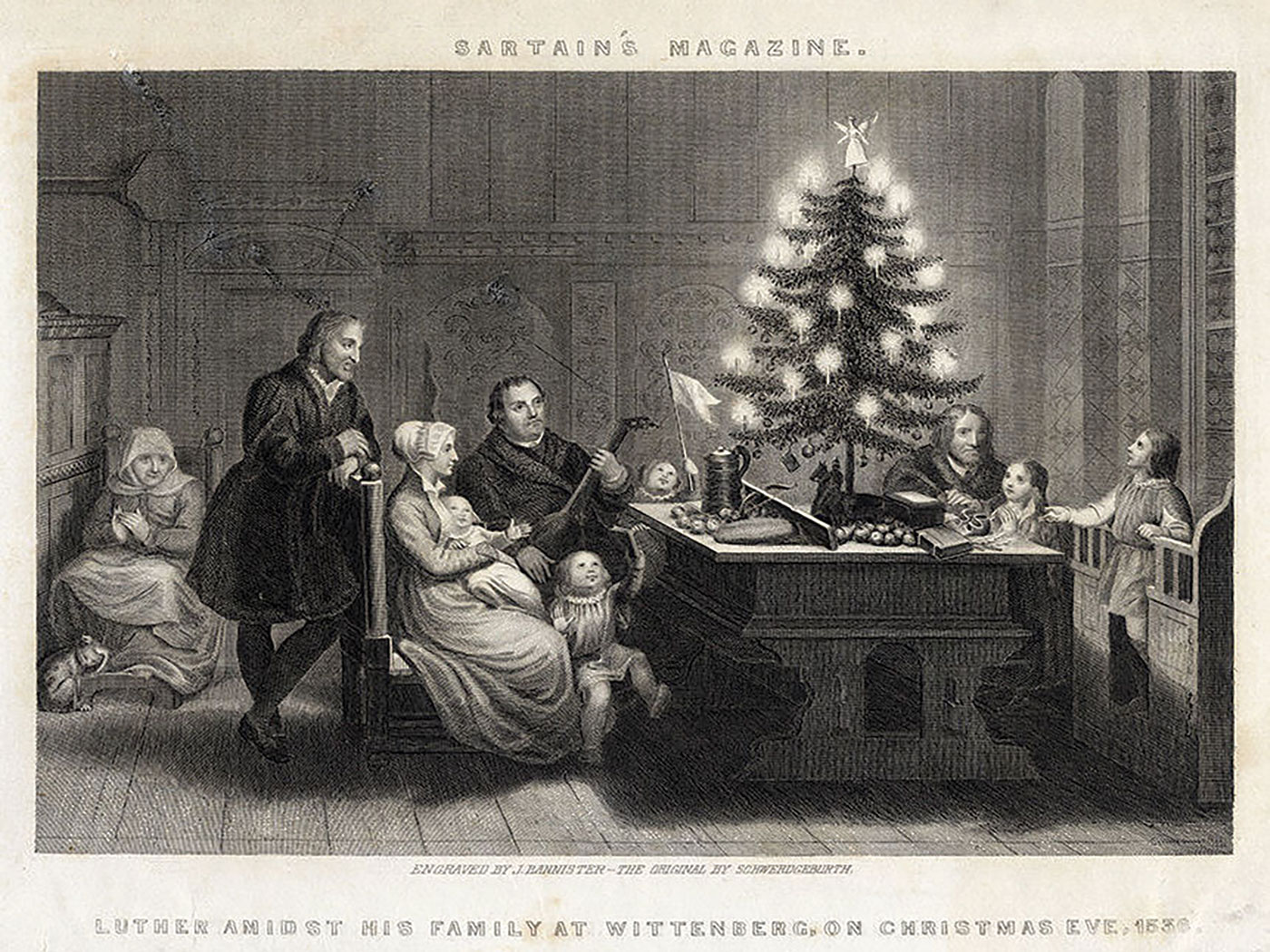
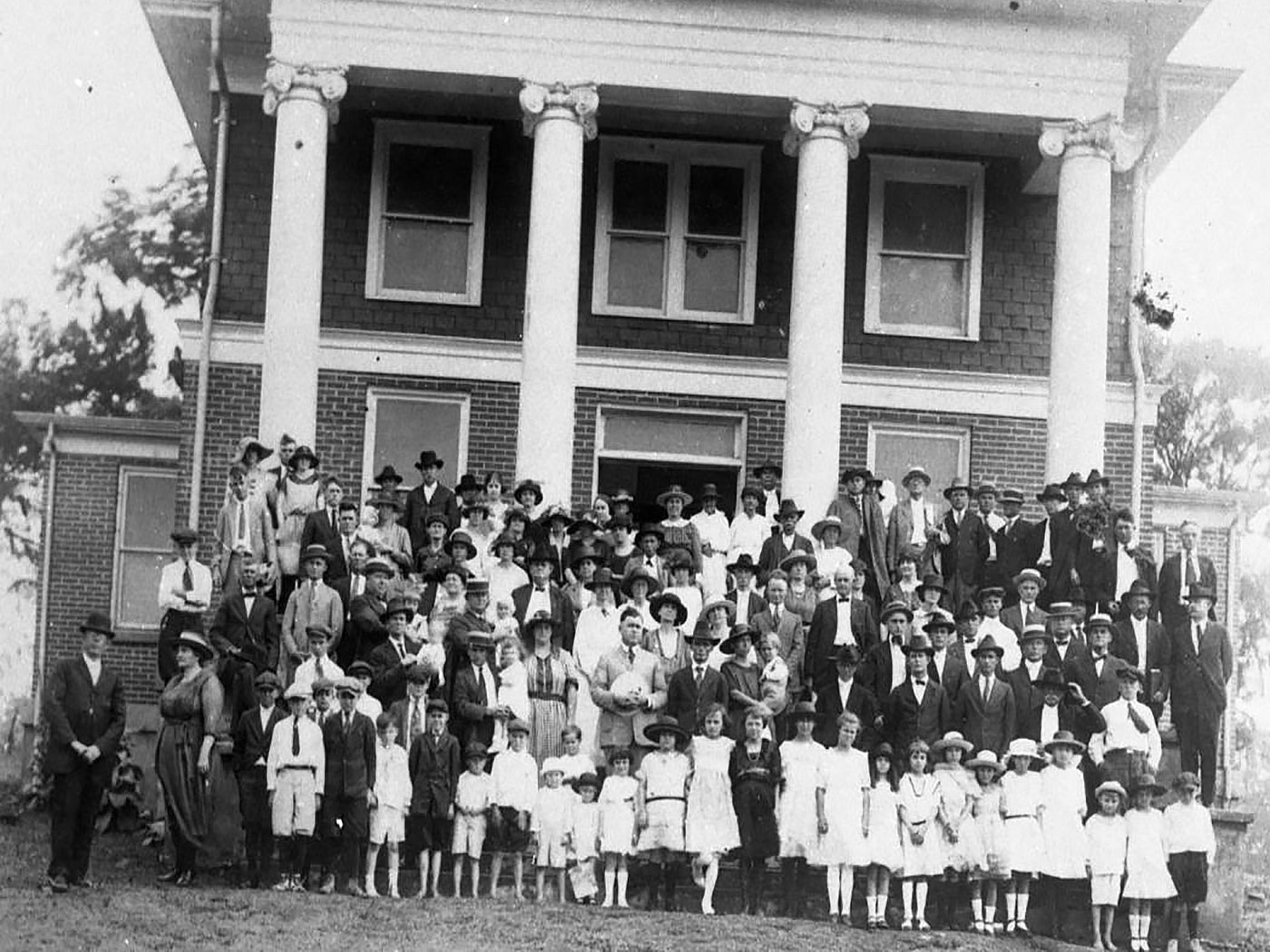



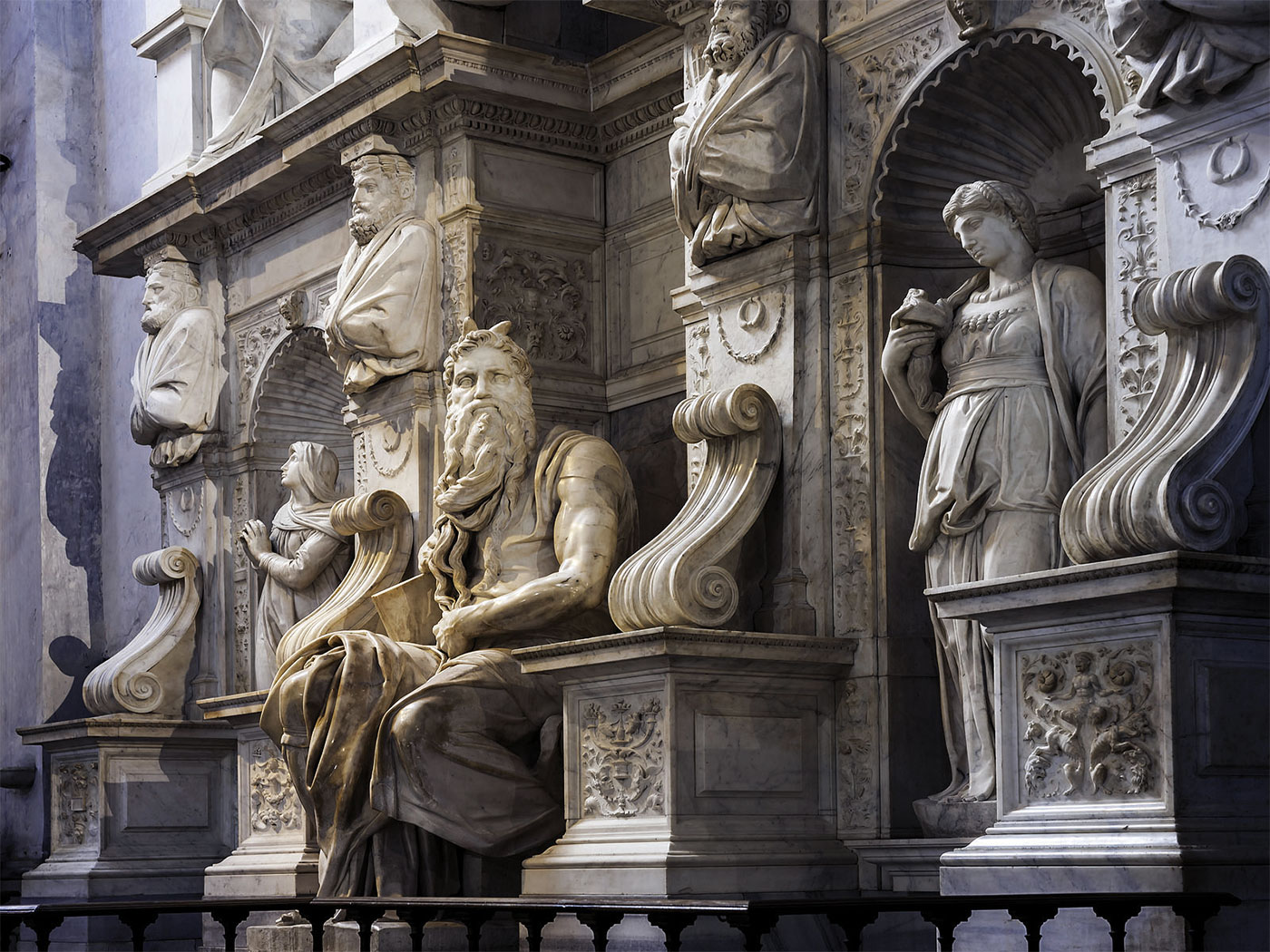

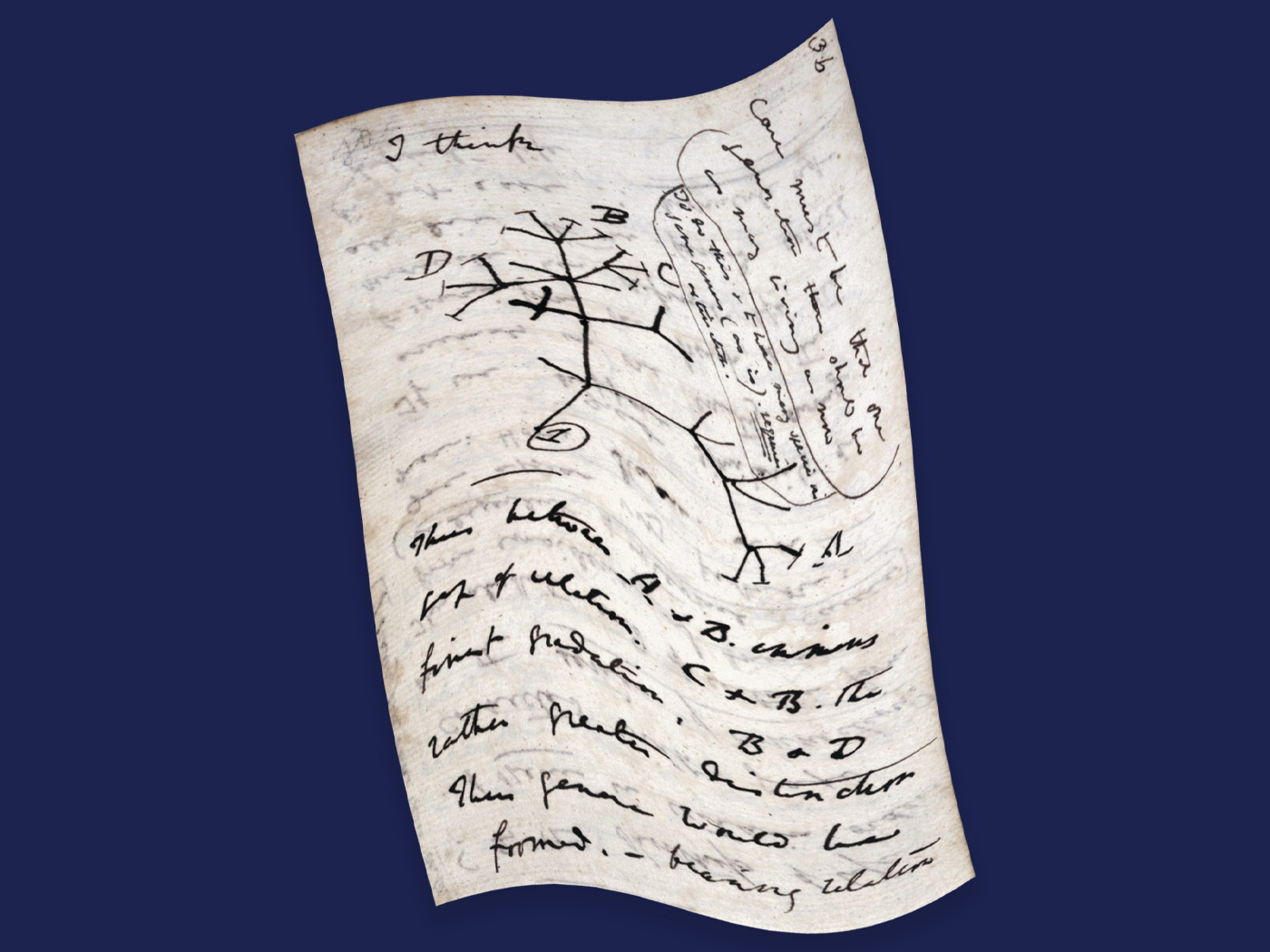



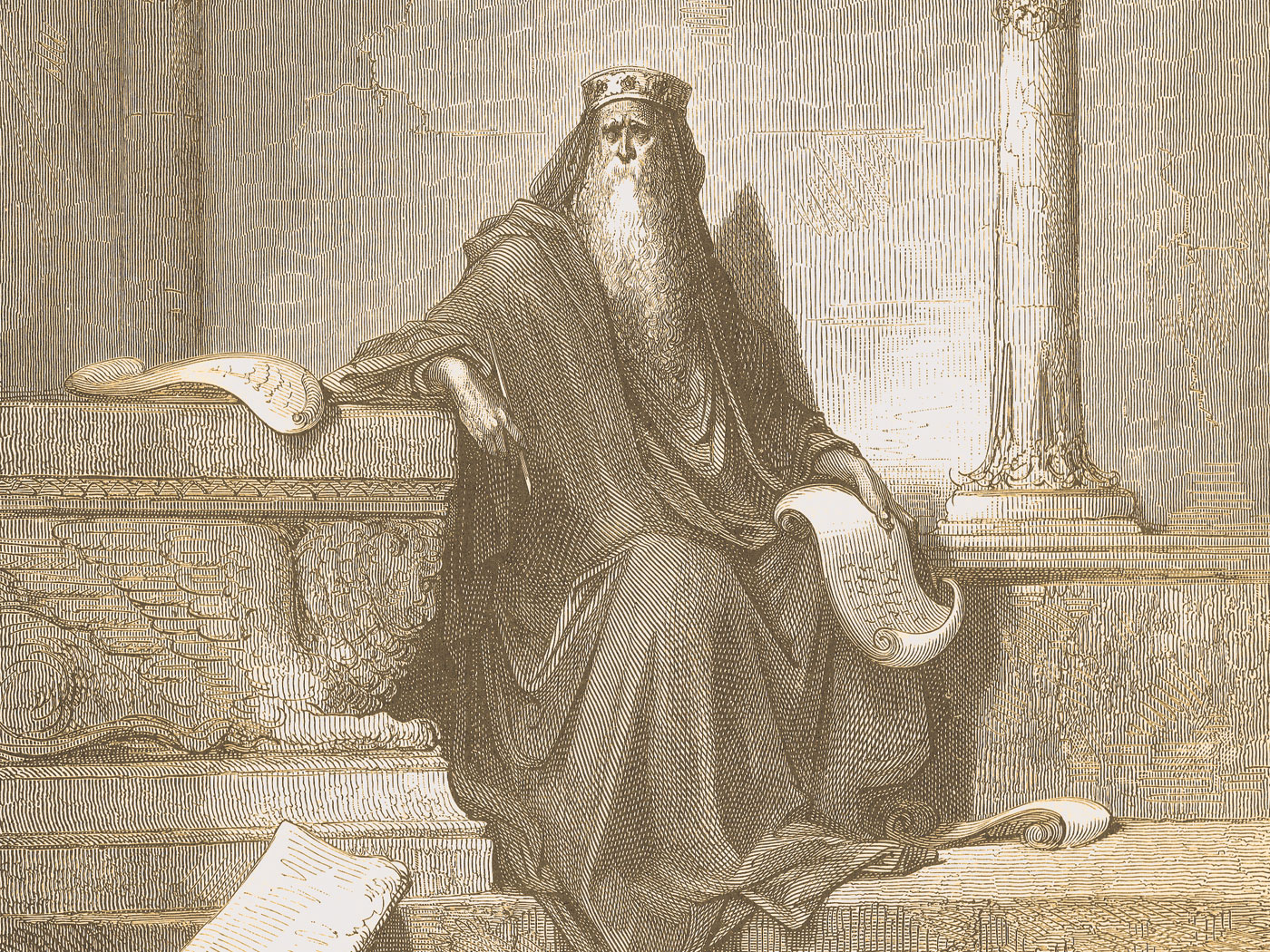


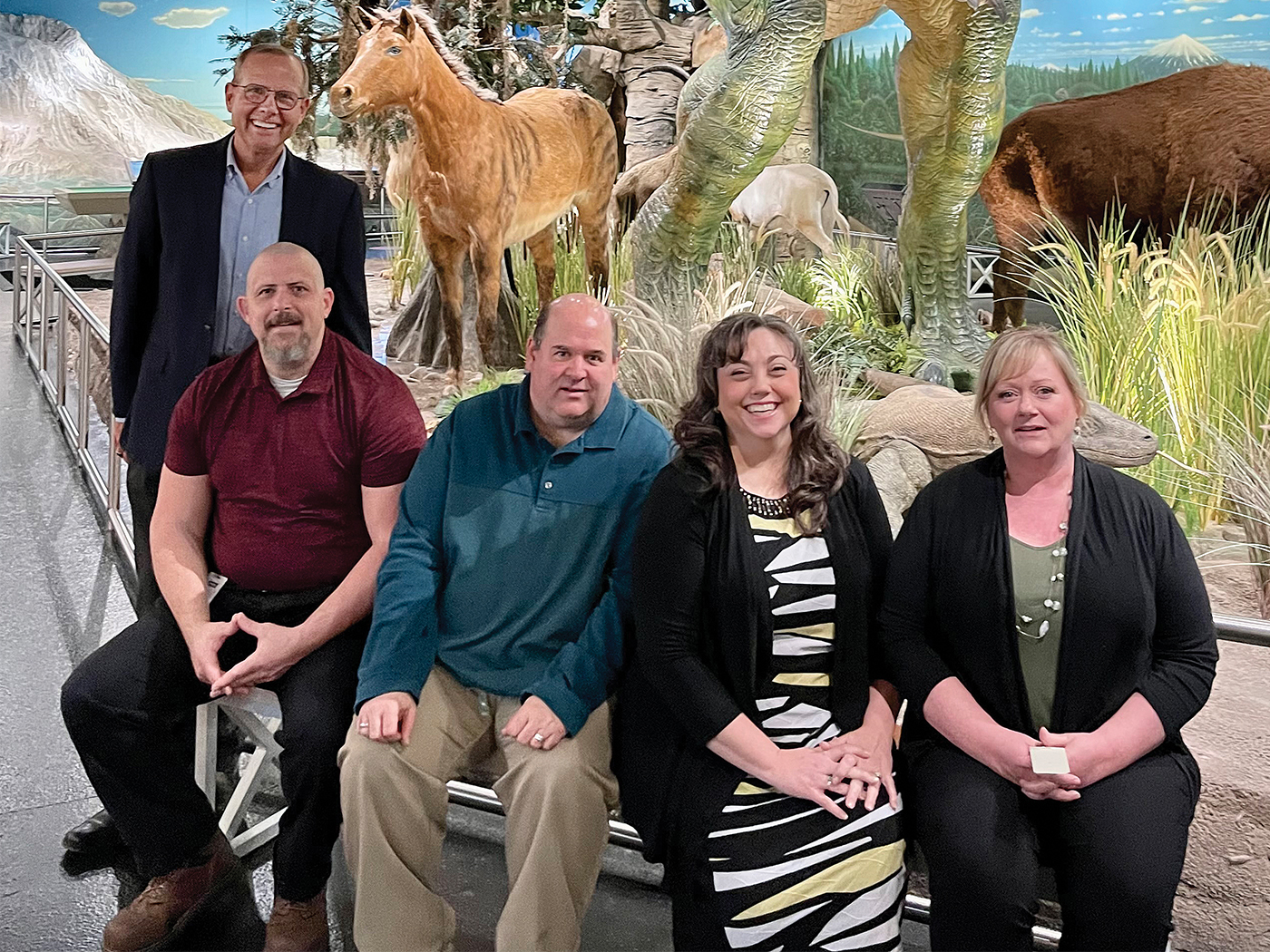


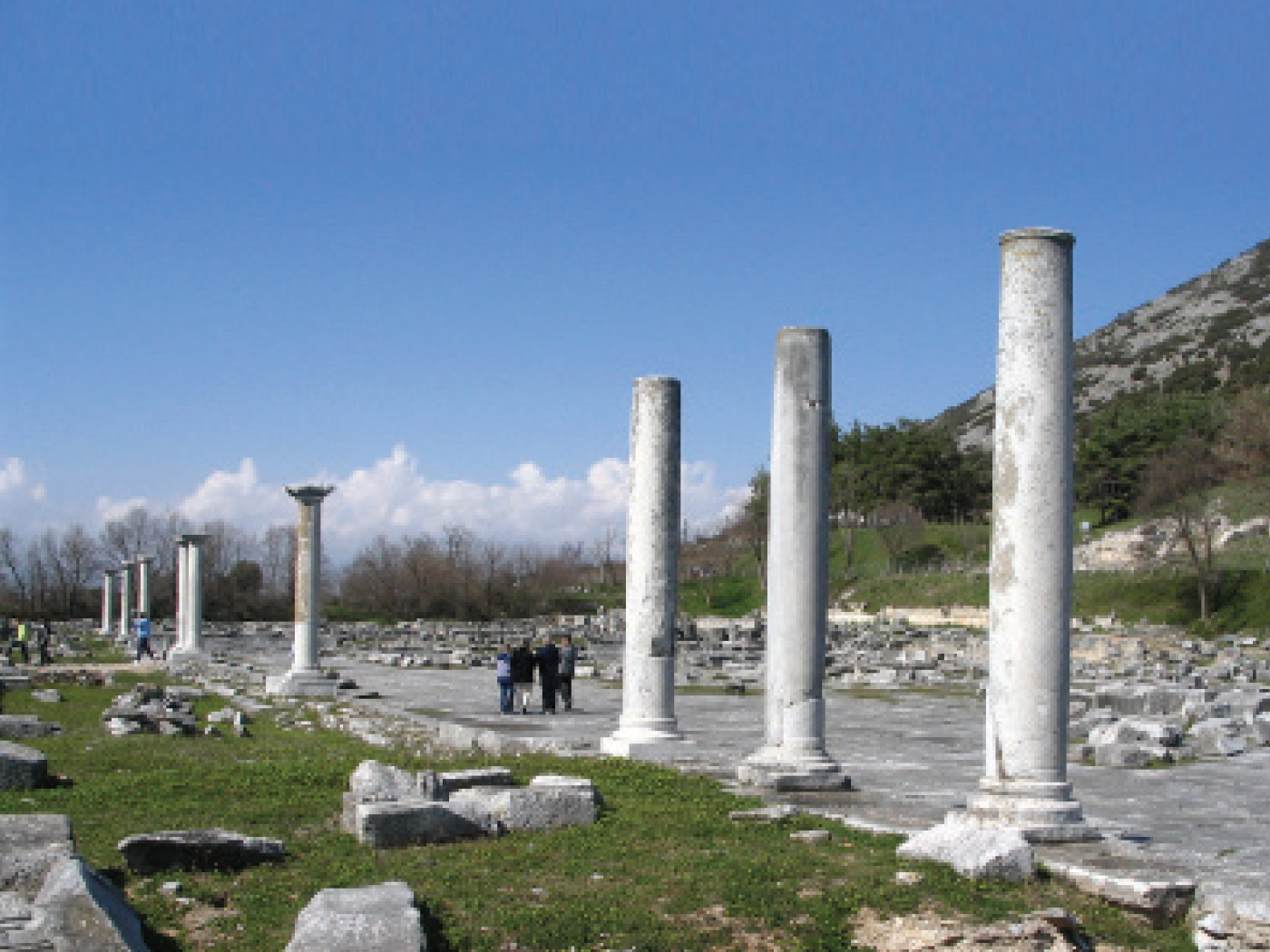



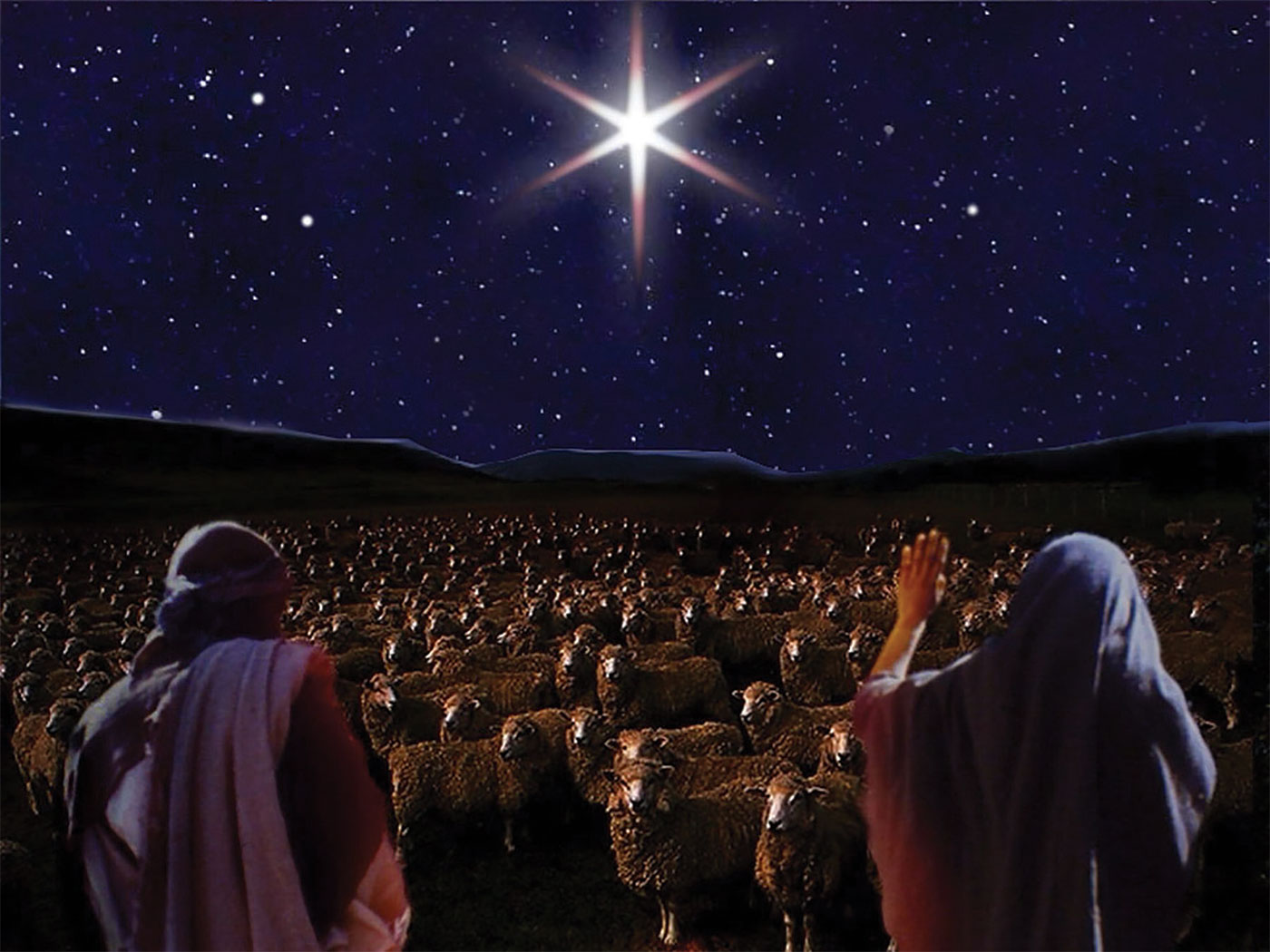





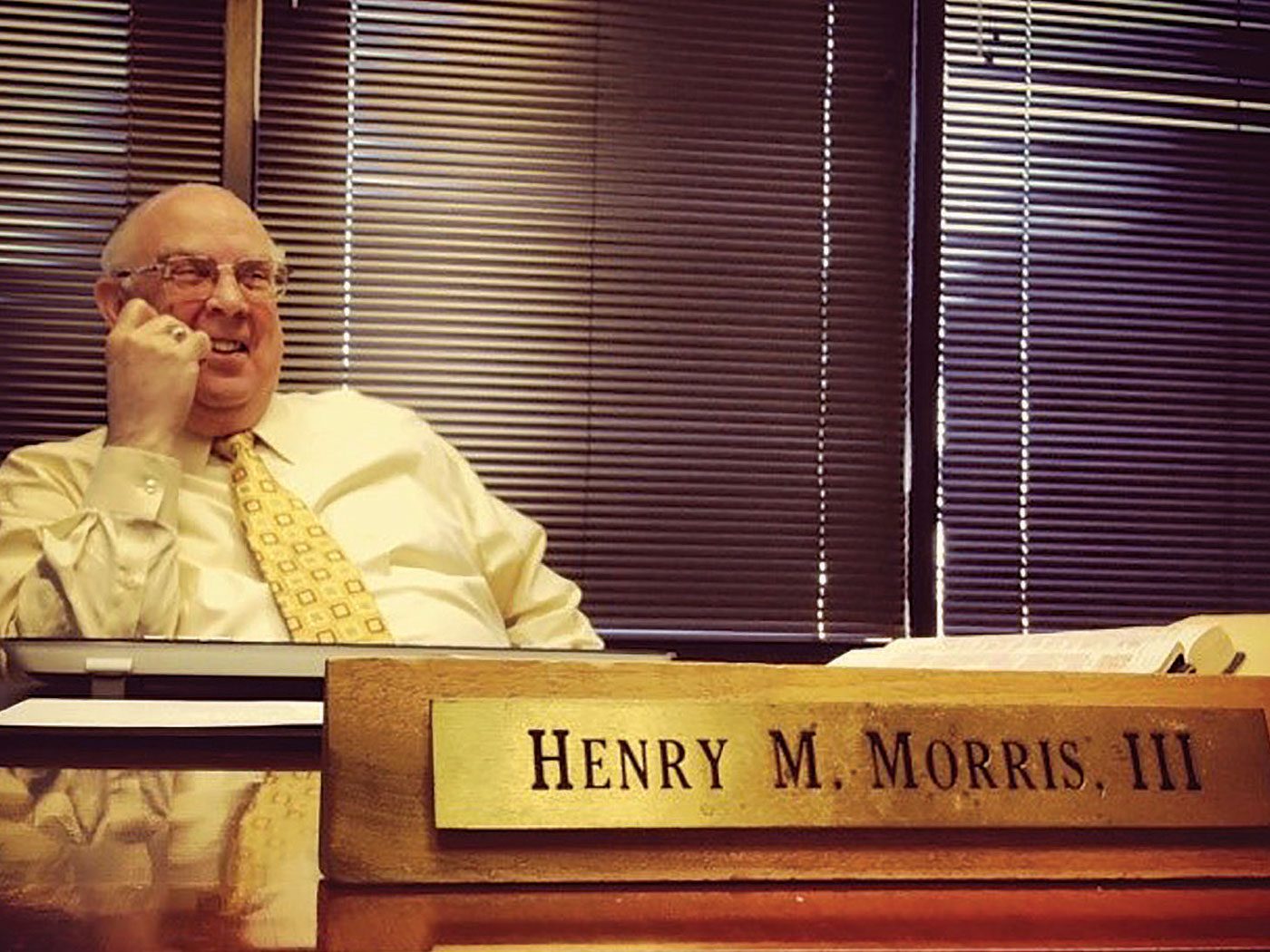


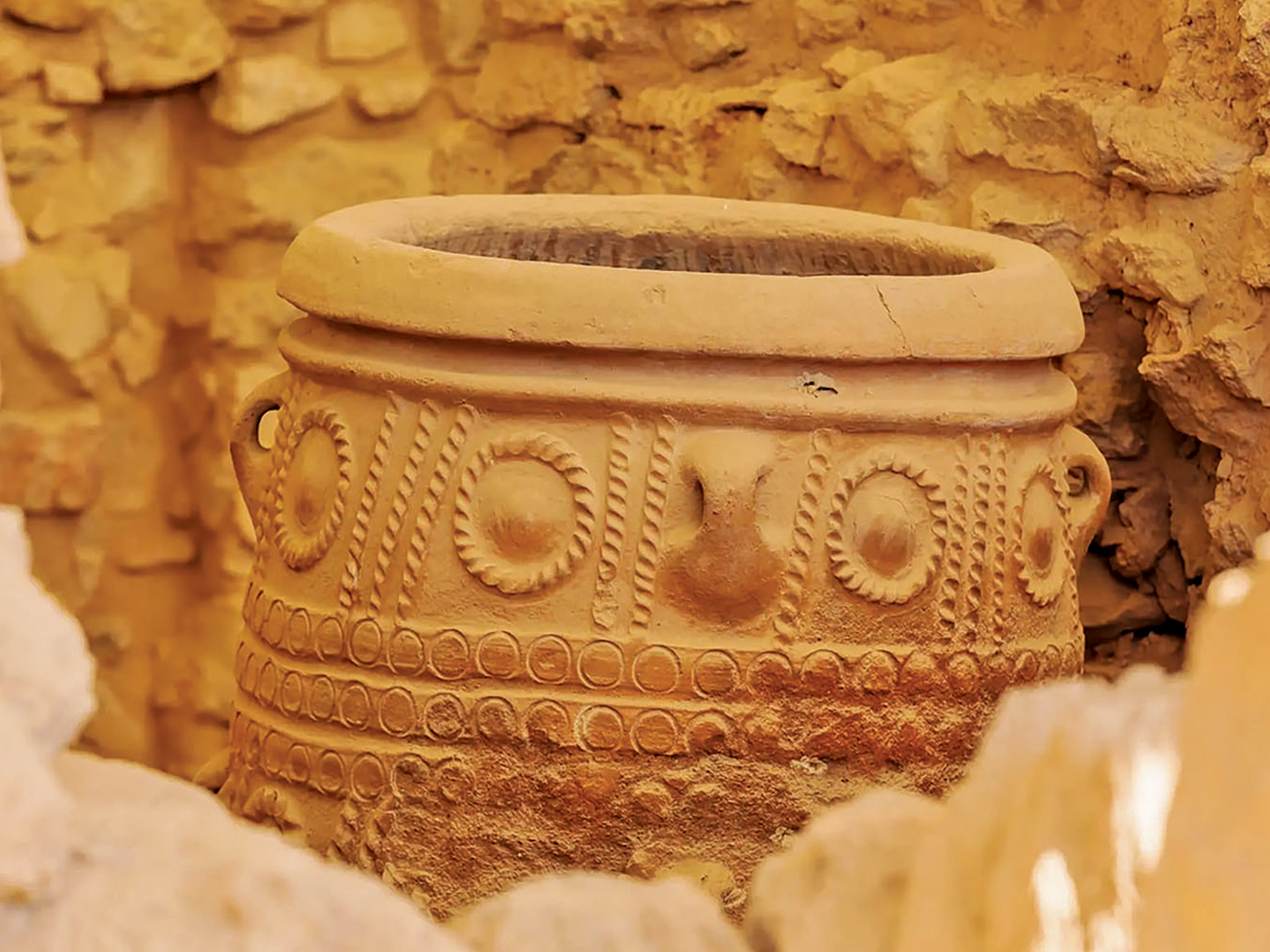


















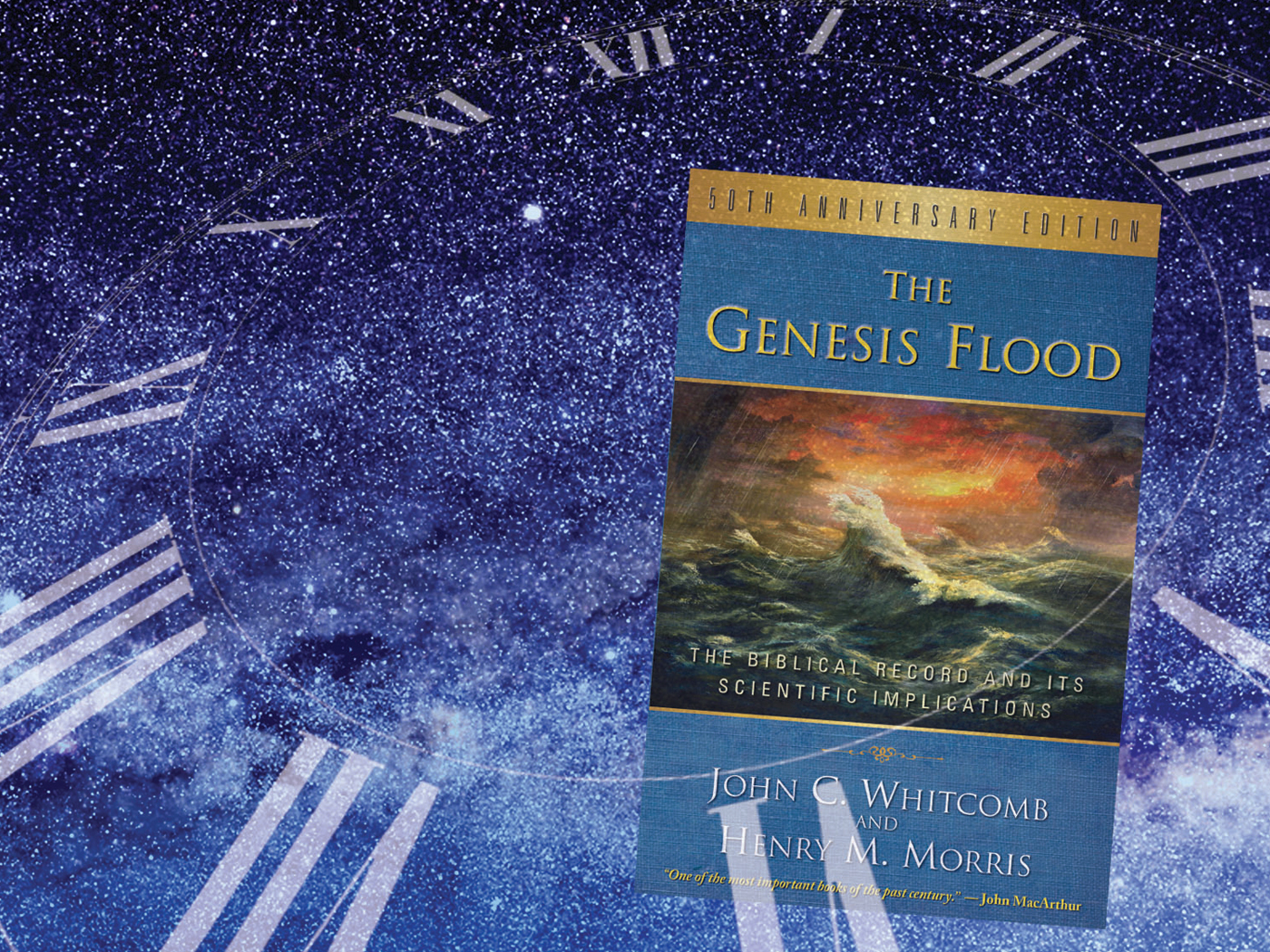






































.jpg)


























































































